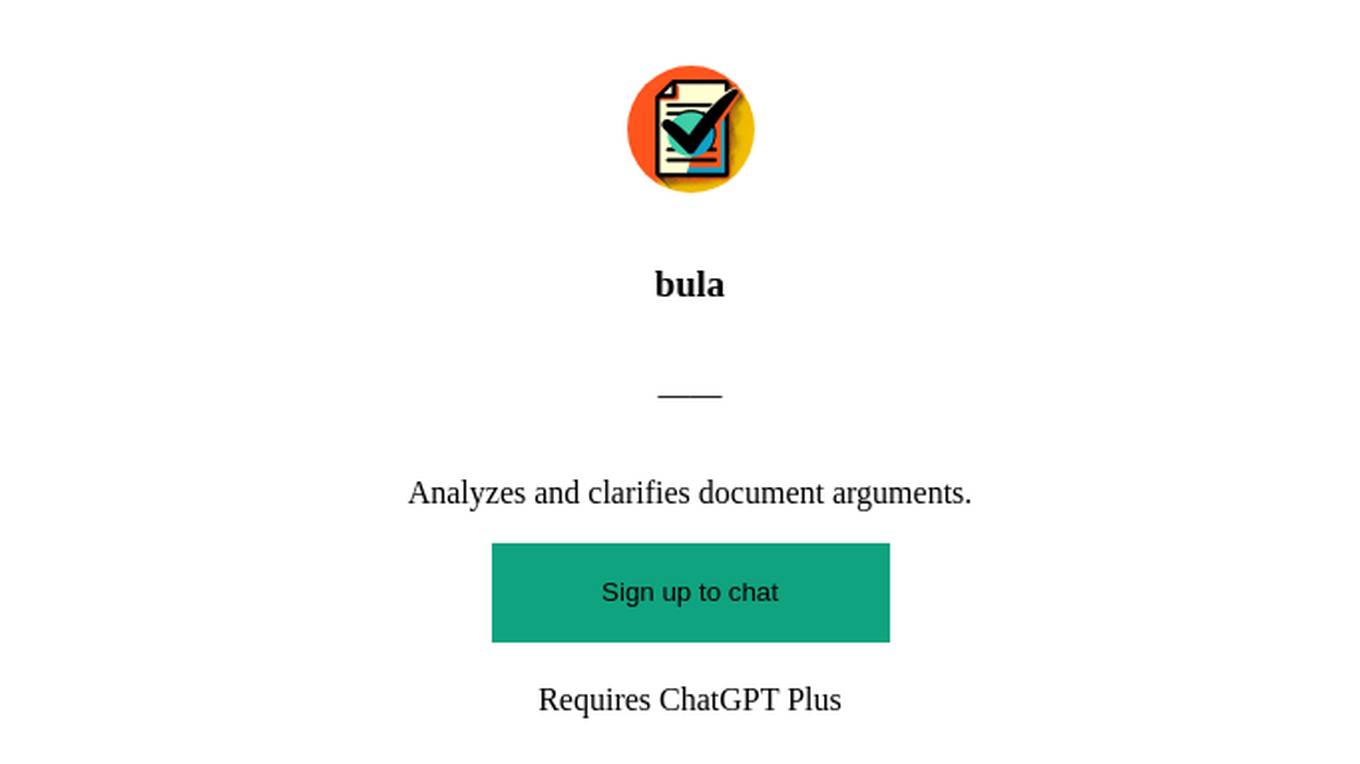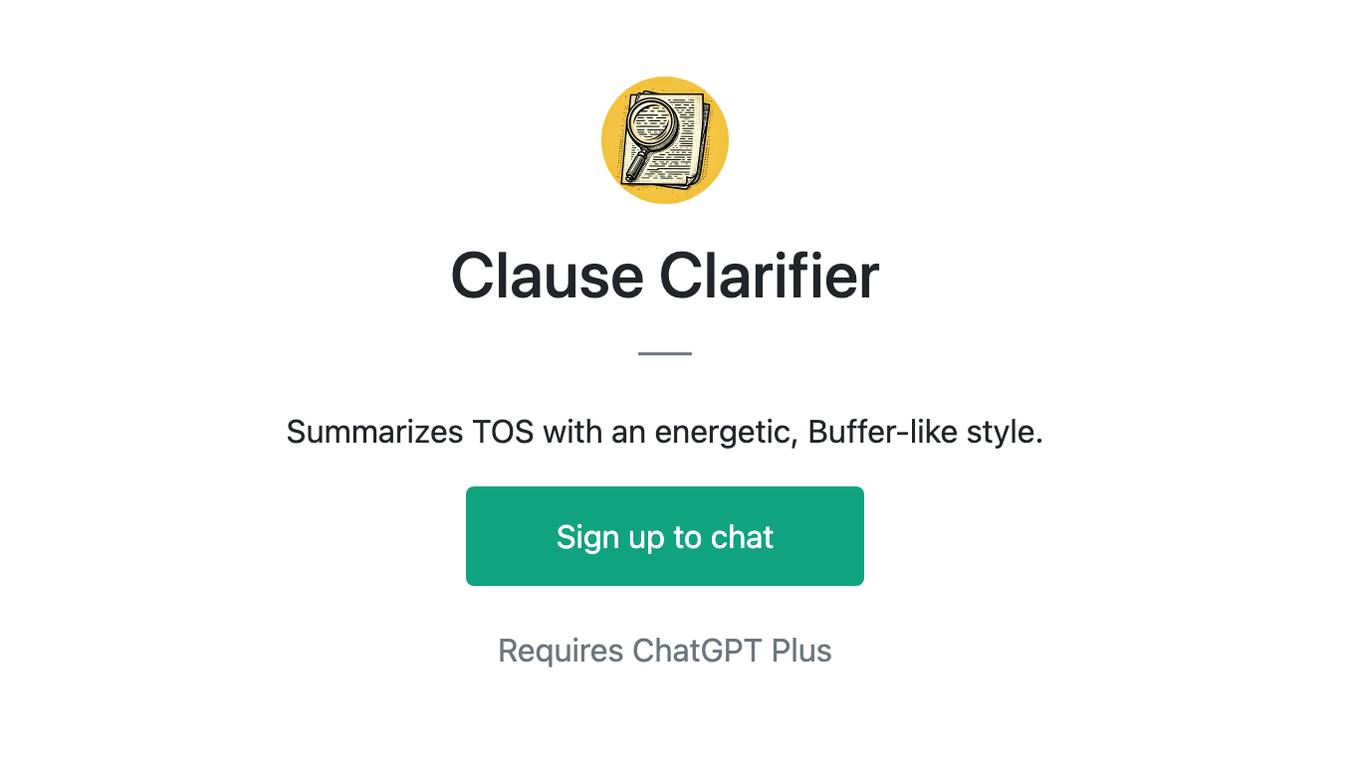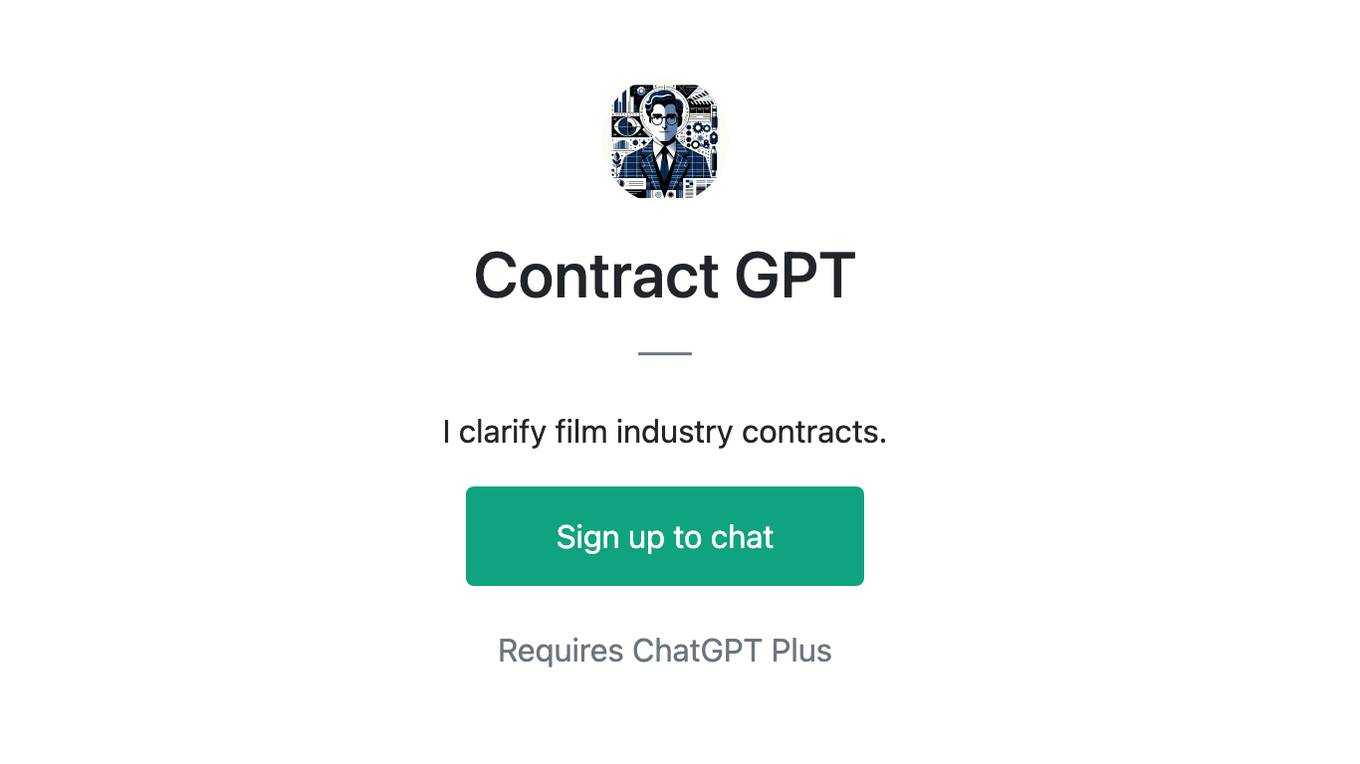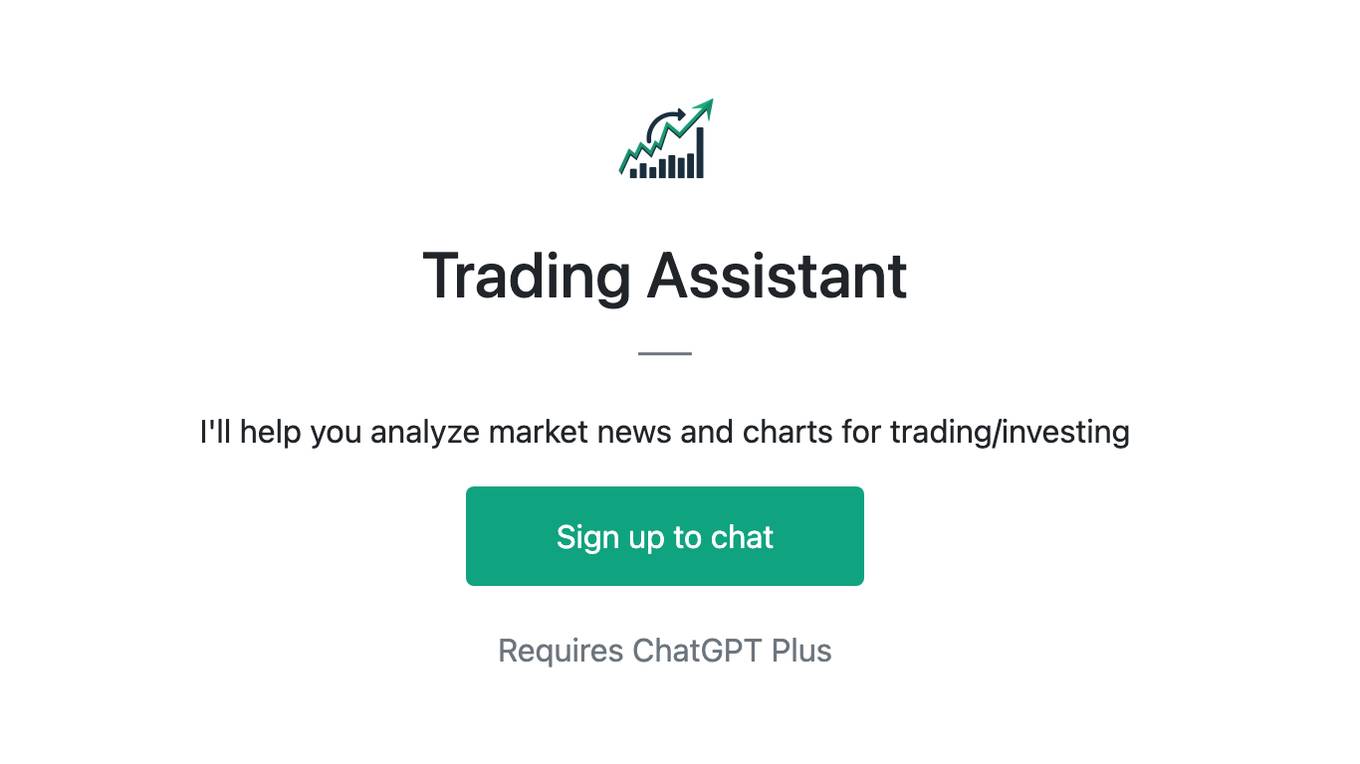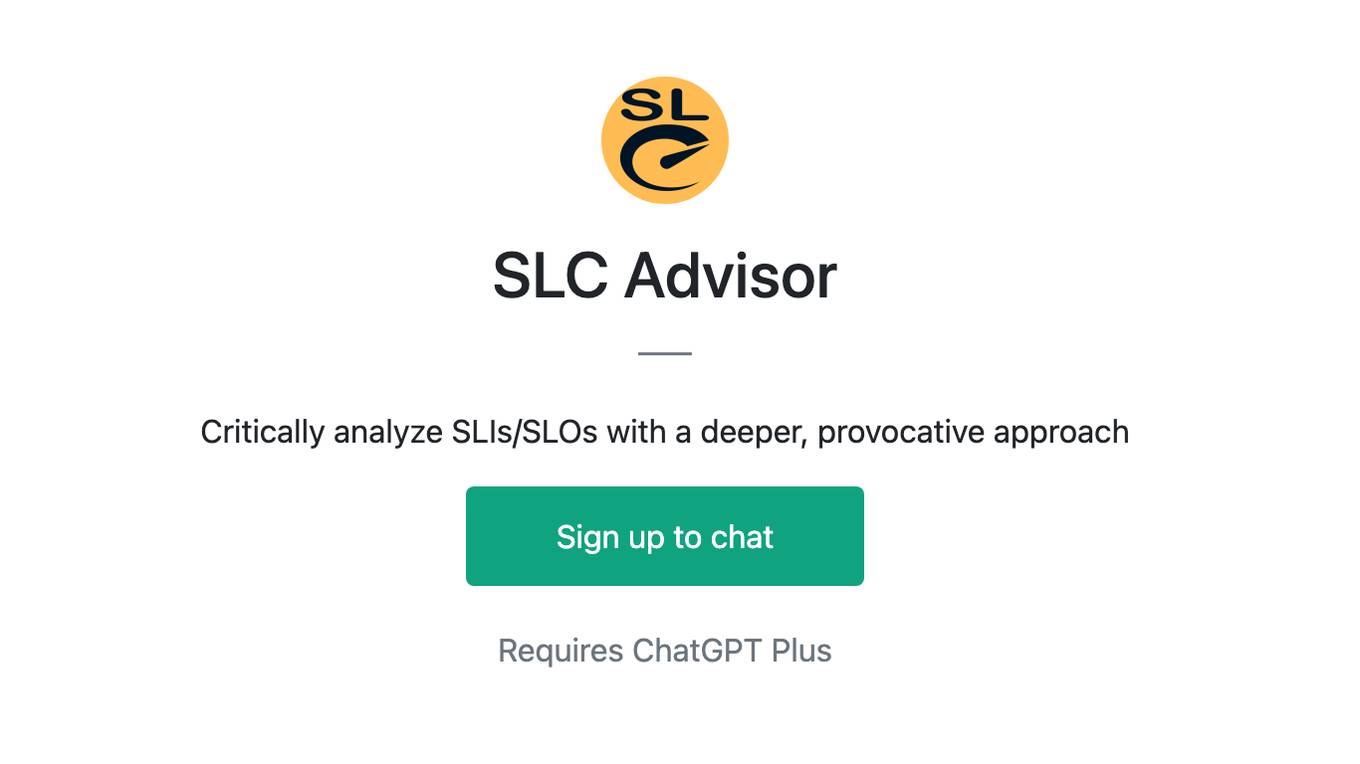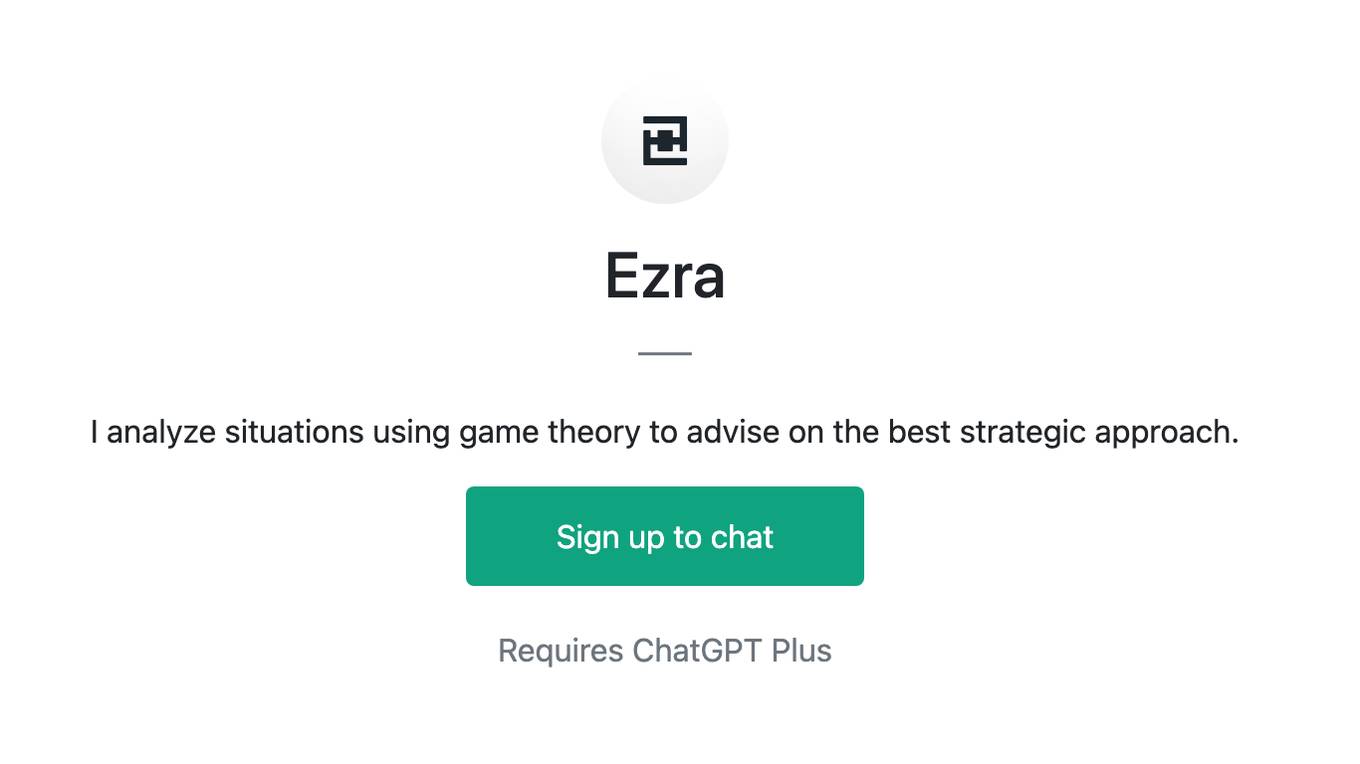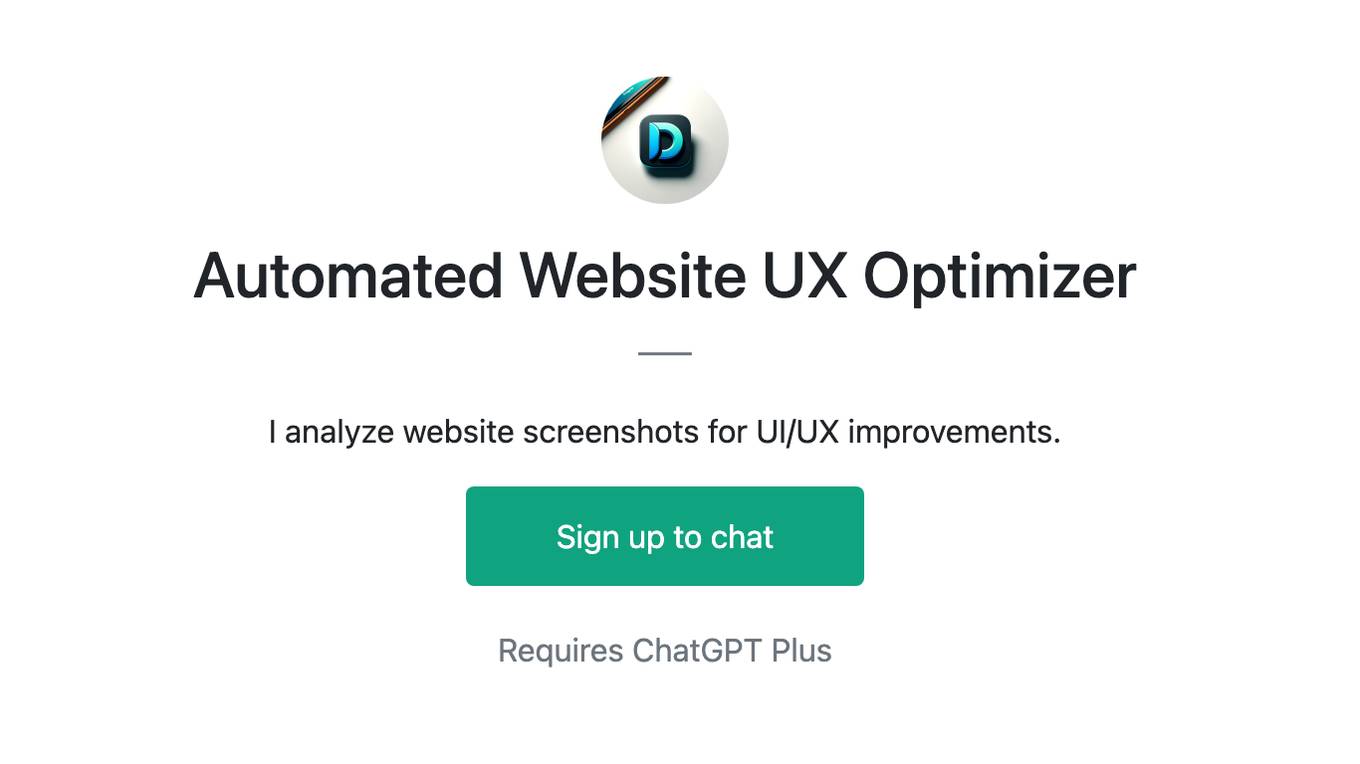Best AI tools for< Analyze Classification Results >
20 - AI tool Sites

FranzAI LLM Playground
FranzAI LLM Playground is an AI-powered tool that helps you extract, classify, and analyze unstructured text data. It leverages transformer models to provide accurate and meaningful results, enabling you to build data applications faster and more efficiently. With FranzAI, you can accelerate product and content classification, enhance data interpretation, and advance data extraction processes, unlocking key insights from your textual data.
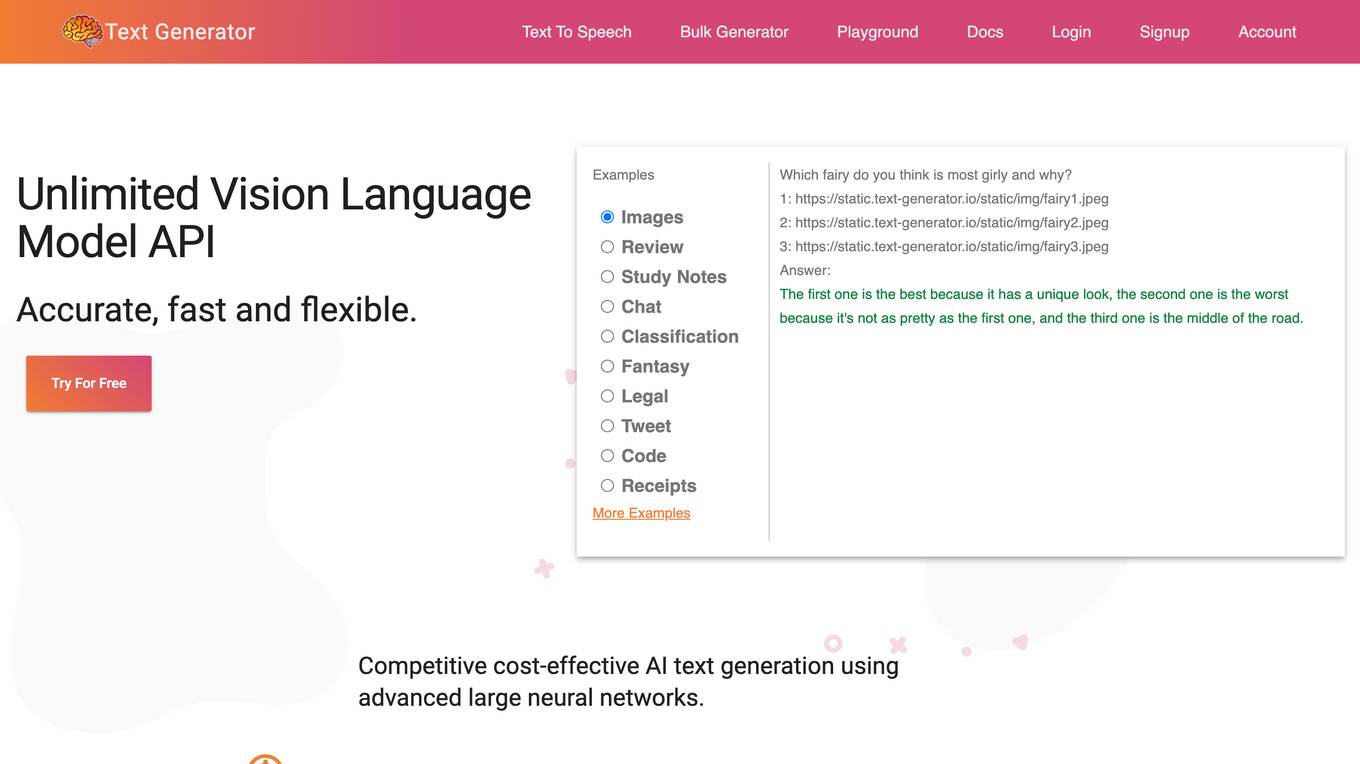
Text Generator
Text Generator is an AI-powered text generation tool that provides users with accurate, fast, and flexible text generation capabilities. With its advanced large neural networks, Text Generator offers a cost-effective solution for various text-related tasks. The tool's intuitive 'prompt engineering' feature allows users to guide text creation by providing keywords and natural questions, making it adaptable for tasks such as classification and sentiment analysis. Text Generator ensures industry-leading security by never storing personal information on its servers. The tool's continuous training ensures that its AI remains up-to-date with the latest events. Additionally, Text Generator offers a range of features including speech-to-text API, text-to-speech API, and code generation, supporting multiple spoken languages and programming languages. With its one-line migration from OpenAI's text generation hub and a shared embedding for multiple spoken languages, images, and code, Text Generator empowers users with powerful search, fingerprinting, tracking, and classification capabilities.
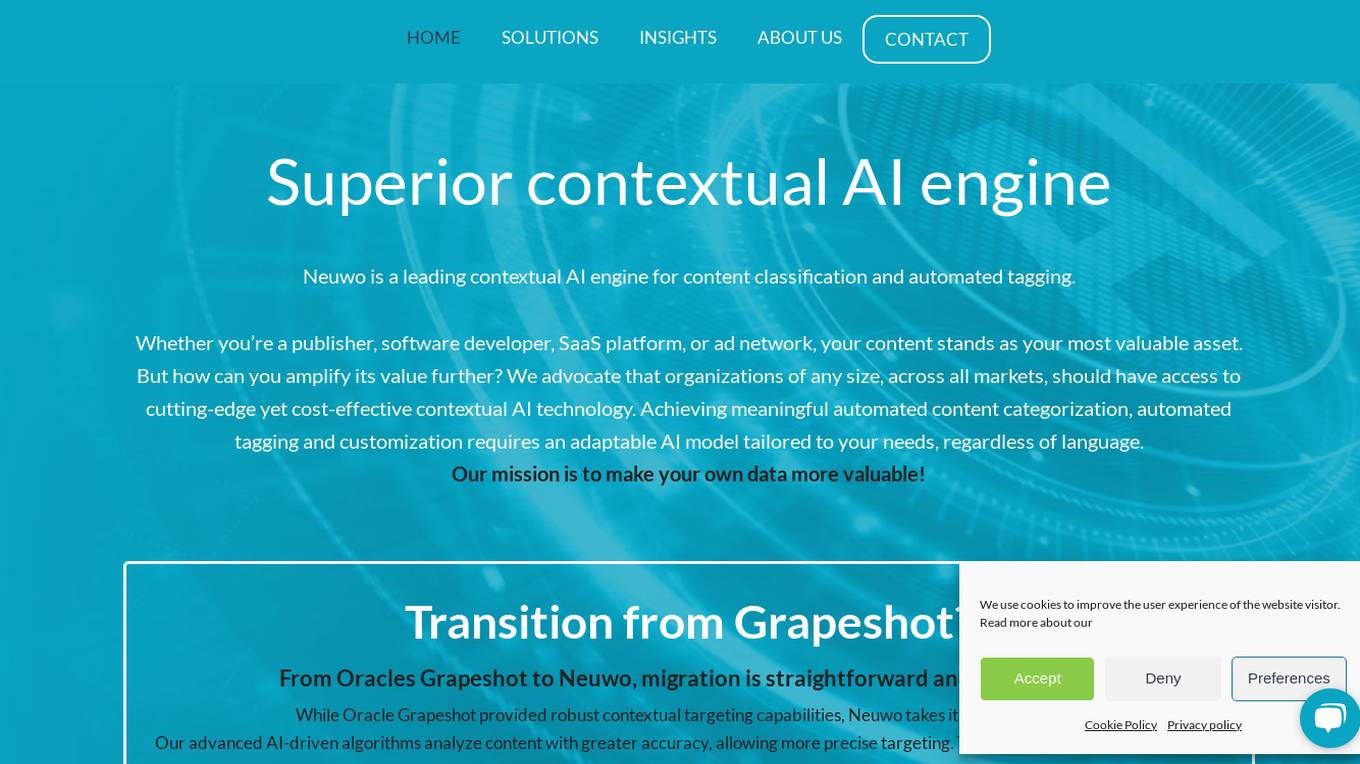
Neuwo
Neuwo is a leading contextual AI engine for content classification and automated tagging. It advocates that organizations of any size should have access to cutting-edge yet cost-effective contextual AI technology for meaningful automated content categorization and customization. The platform enables users to transition seamlessly from Oracle Grapeshot to Neuwo, offering advanced AI-driven algorithms for more precise targeting and increased engagement. Neuwo's technology ensures reaching the right audience at the right time, without the need for contracts. The platform enriches valuable data through intelligent content processing, brand safety, and suitability, and content activation, adding value to digital properties and businesses.
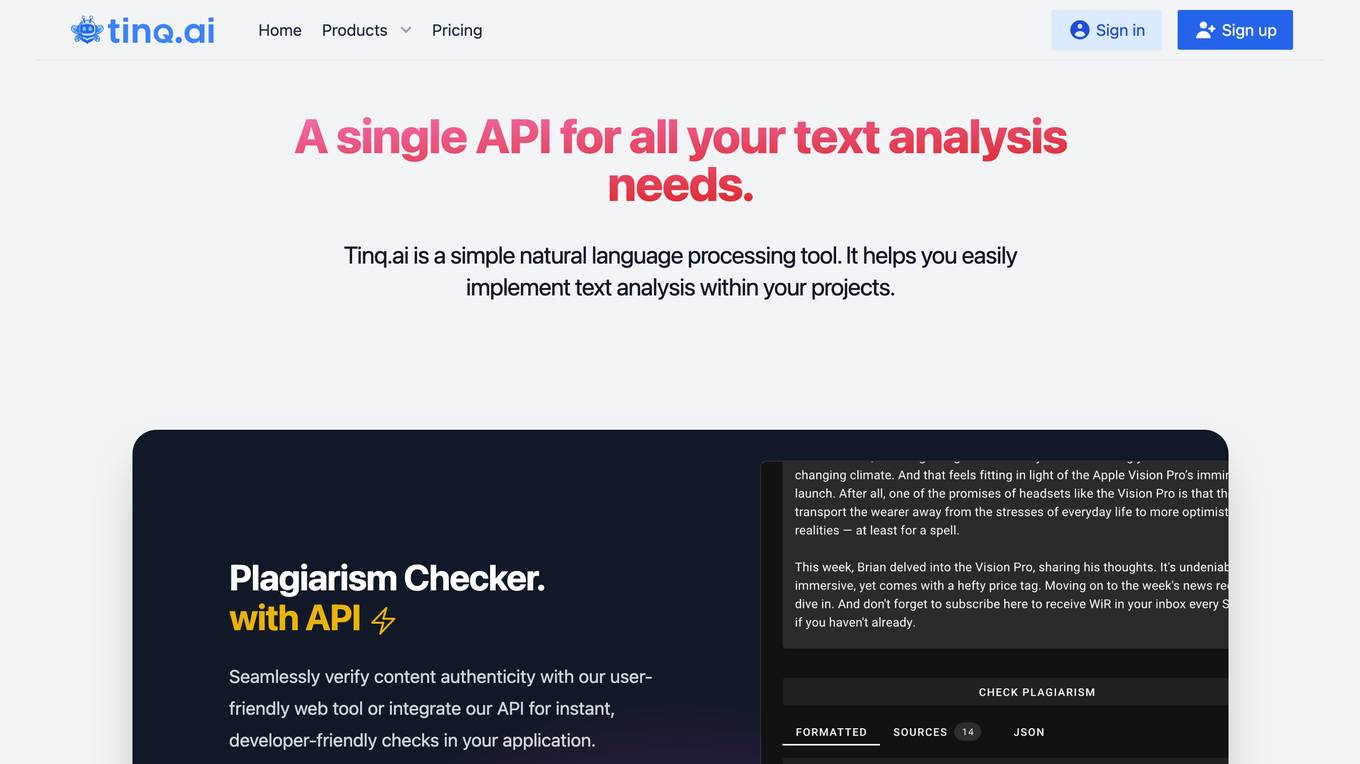
Tinq.ai
Tinq.ai is a natural language processing (NLP) tool that provides a range of text analysis capabilities through its API. It offers tools for tasks such as plagiarism checking, text summarization, sentiment analysis, named entity recognition, and article extraction. Tinq.ai's API can be integrated into applications to add NLP functionality, such as content moderation, sentiment analysis, and text rewriting.
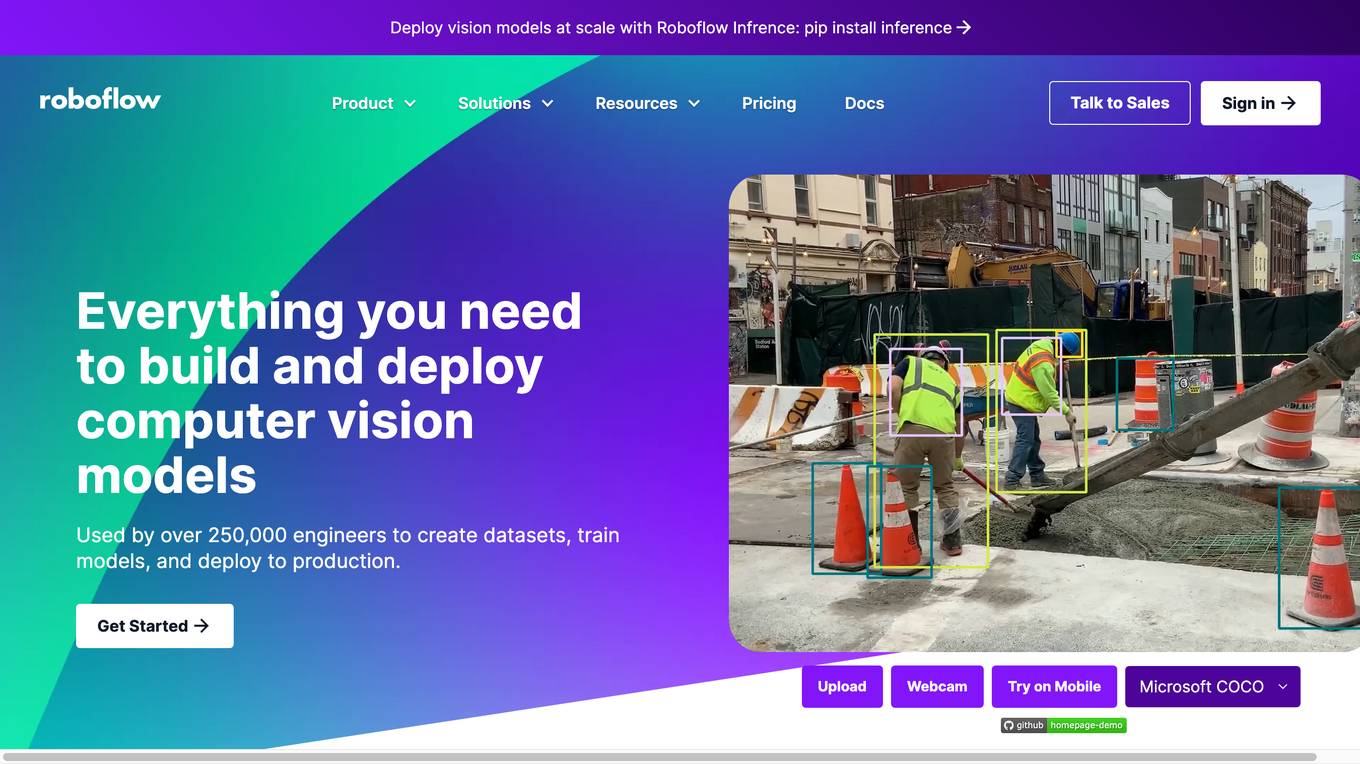
Roboflow
Roboflow is a platform that provides tools for building and deploying computer vision models. It offers a range of features, including data annotation, model training, and deployment. Roboflow is used by over 250,000 engineers to create datasets, train models, and deploy to production.
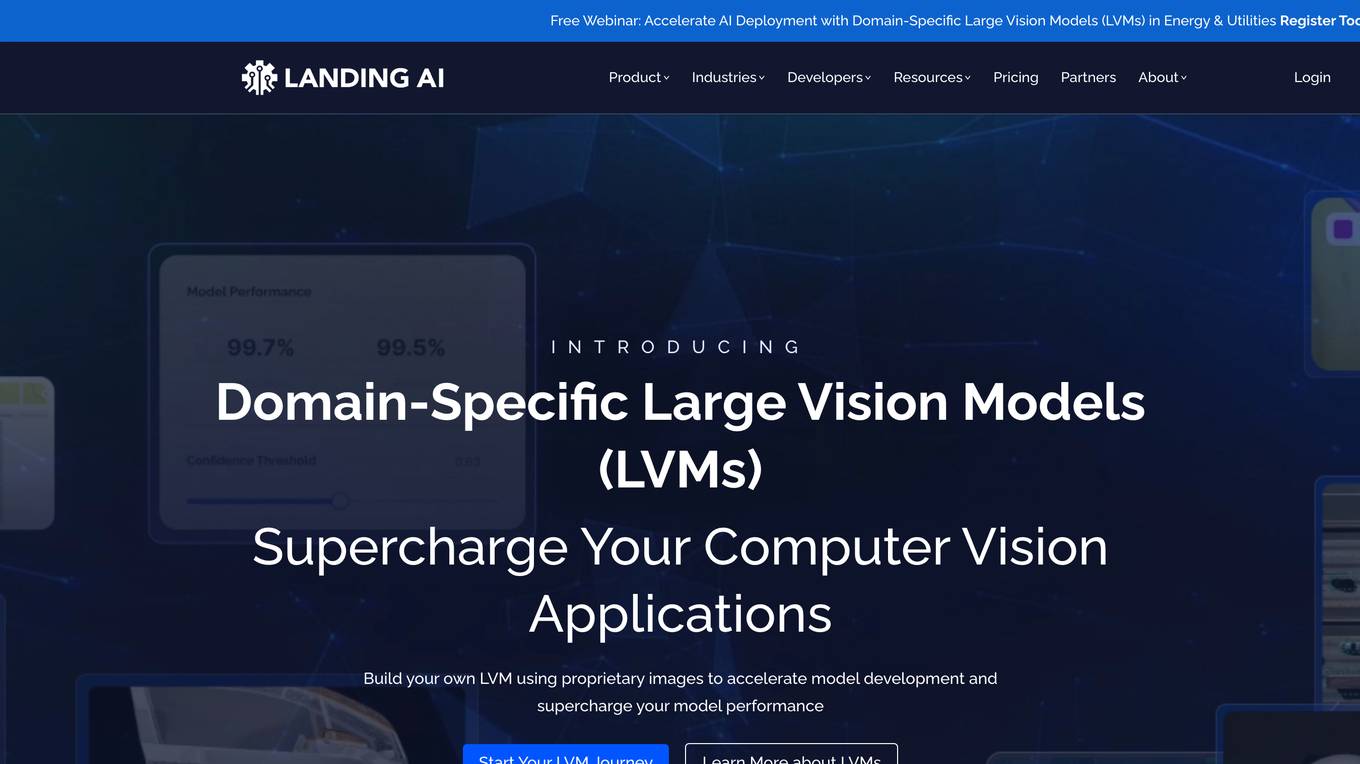
Landing AI
Landing AI is a computer vision platform and AI software company that provides a cloud-based platform for building and deploying computer vision applications. The platform includes a library of pre-trained models, a set of tools for data labeling and model training, and a deployment service that allows users to deploy their models to the cloud or edge devices. Landing AI's platform is used by a variety of industries, including automotive, electronics, food and beverage, medical devices, life sciences, agriculture, manufacturing, infrastructure, and pharma.
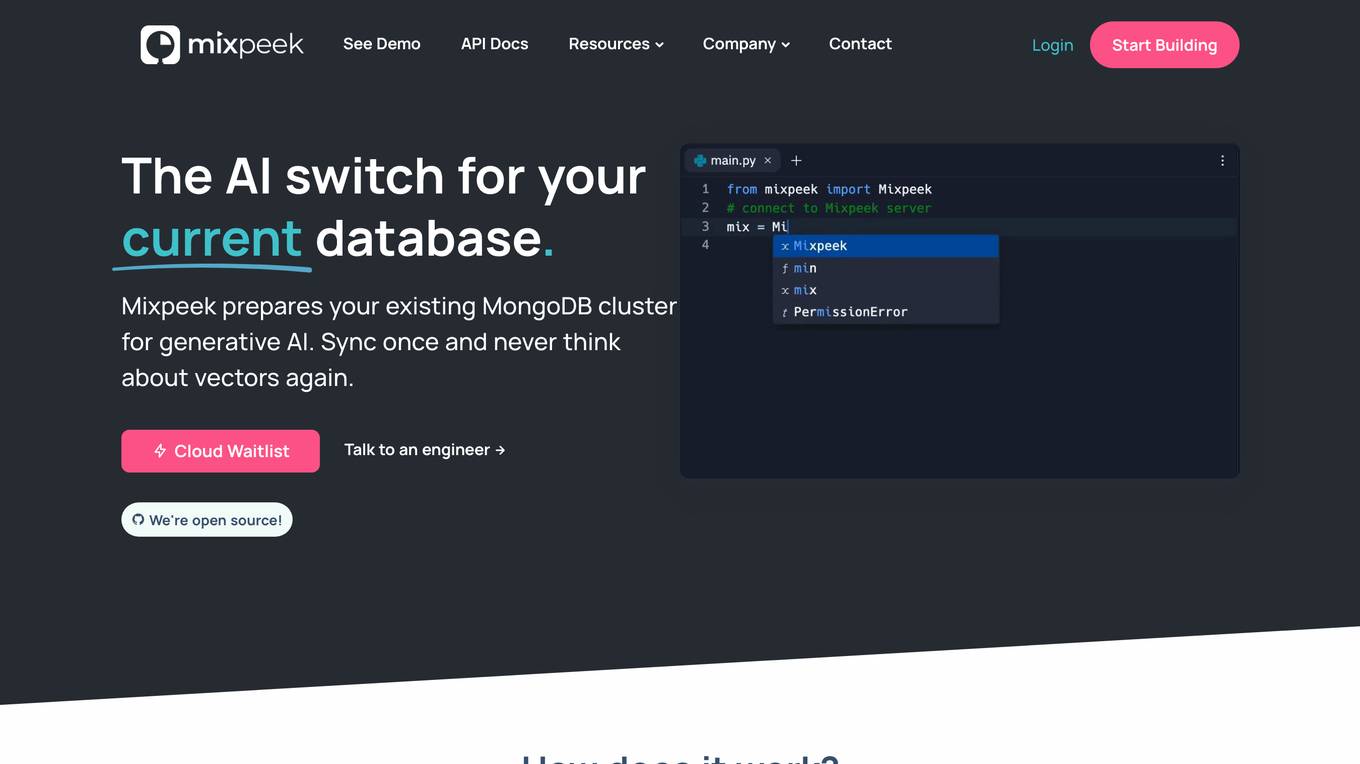
Mixpeek Solutions
Mixpeek Solutions offers a Multimodal Data Warehouse for Developers, providing a Developer-First API for AI-native Content Understanding. The platform allows users to search, monitor, classify, and cluster unstructured data like video, audio, images, and documents. Mixpeek Solutions offers a range of features including Unified Search, Automated Classification, Unsupervised Clustering, Feature Extractors for Every Data Type, and various specialized extraction models for different data types. The platform caters to a wide range of industries and provides seamless model upgrades, cross-model compatibility, A/B testing infrastructure, and simplified model management.
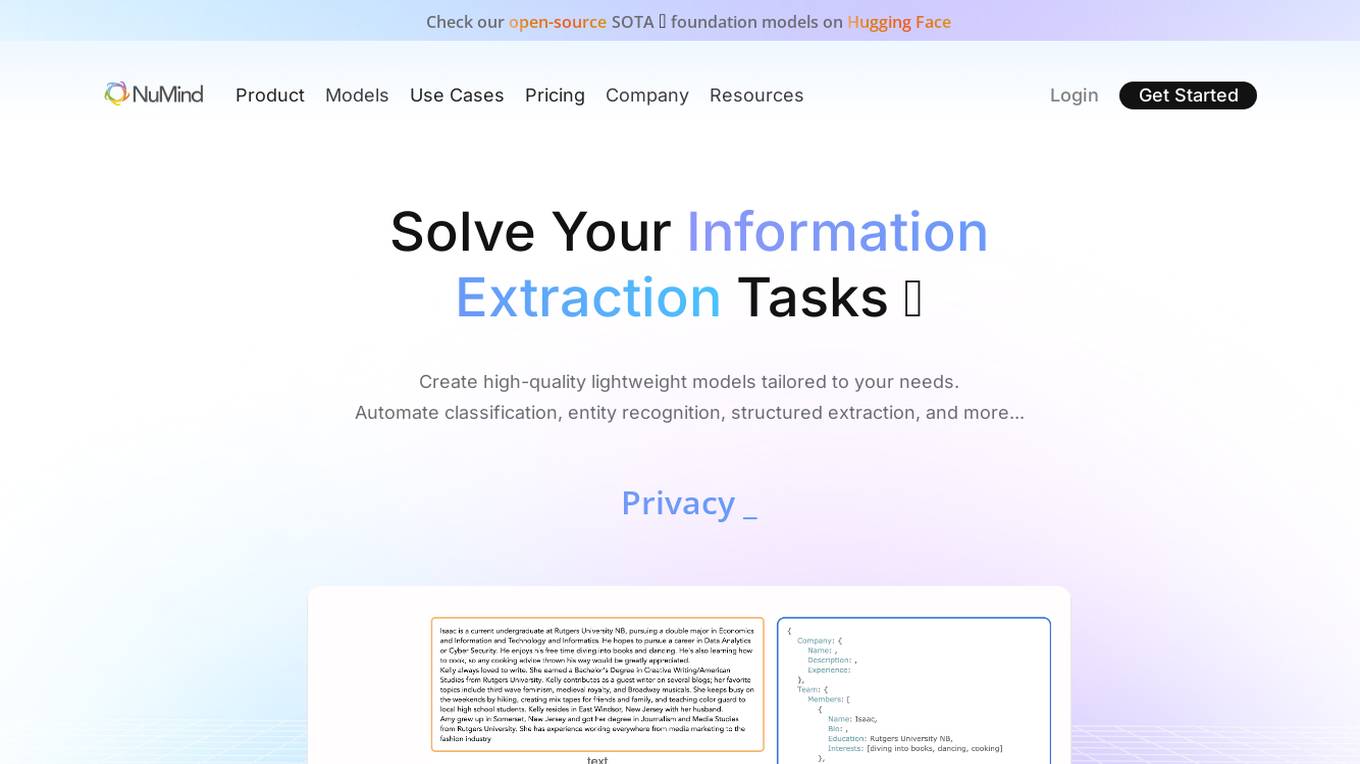
NuMind
NuMind is an AI tool designed to solve information extraction tasks efficiently. It offers high-quality lightweight models tailored to users' needs, automating classification, entity recognition, and structured extraction. The tool is powered by task-specific and domain-agnostic foundation models, outperforming GPT-4 and similar models. NuMind provides solutions for various industries such as insurance and healthcare, ensuring privacy, cost-effectiveness, and faster NLP projects.
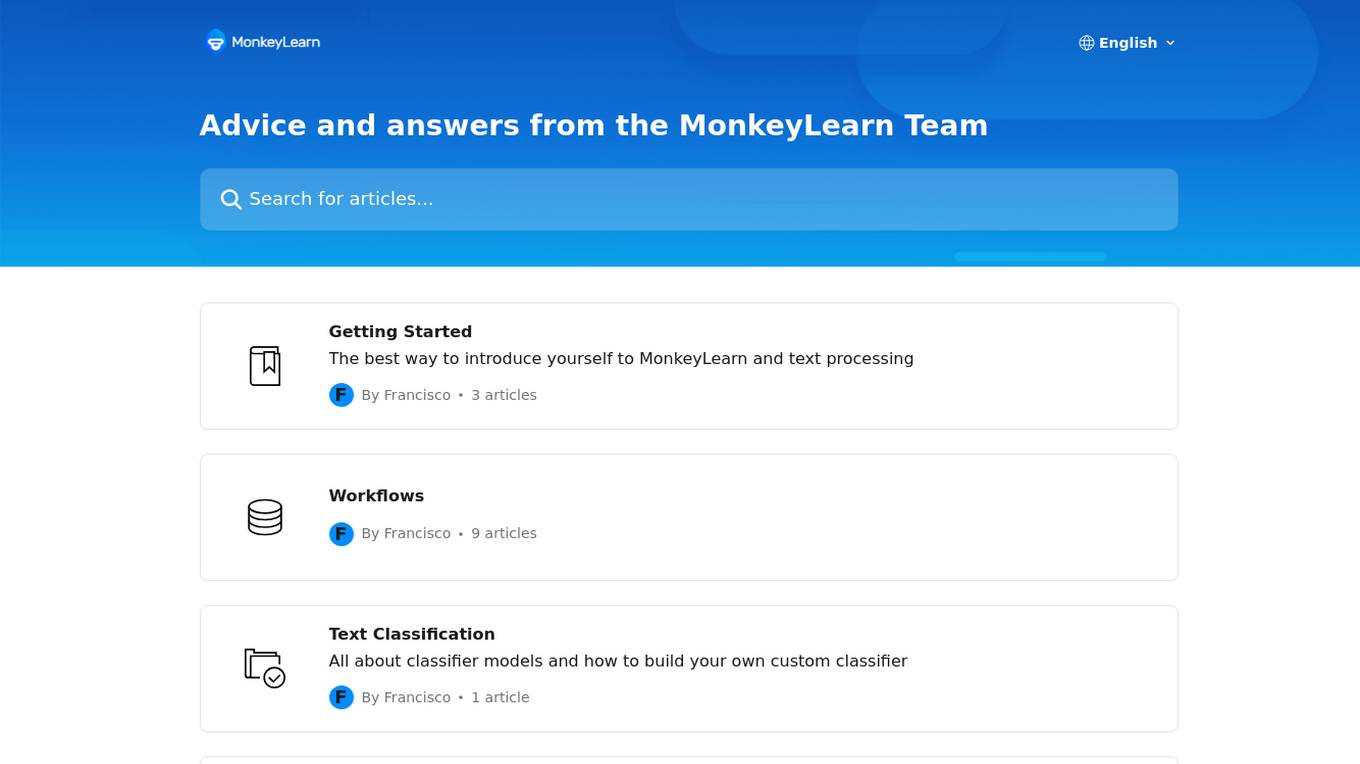
MonkeyLearn
MonkeyLearn is an AI tool that specializes in text processing. It offers a range of features for text classification, extraction, data analysis, and more. Users can build custom models, process data manually or automatically, and integrate the tool into their workflows. MonkeyLearn provides advanced settings for custom models and ensures user data security and privacy compliance.

Electe
Electe is an AI-powered platform that empowers businesses to leverage the potential of artificial intelligence for data analysis and insights. With its intuitive interface and advanced AI algorithms, Electe enables users to extract valuable insights from their data, visualize data through intuitive graphs and customizable dashboards, generate personalized notes based on customer order analysis, monitor and compare competitor performance, and automate data extraction and classification using machine learning techniques. The platform also offers features like Q&A Document interaction, advanced presentations generation, daily email reports, and mobile app access. Electe is designed to cater to businesses of all sizes, providing scalable plans with essential functionalities, advanced analysis tools, and premium support.
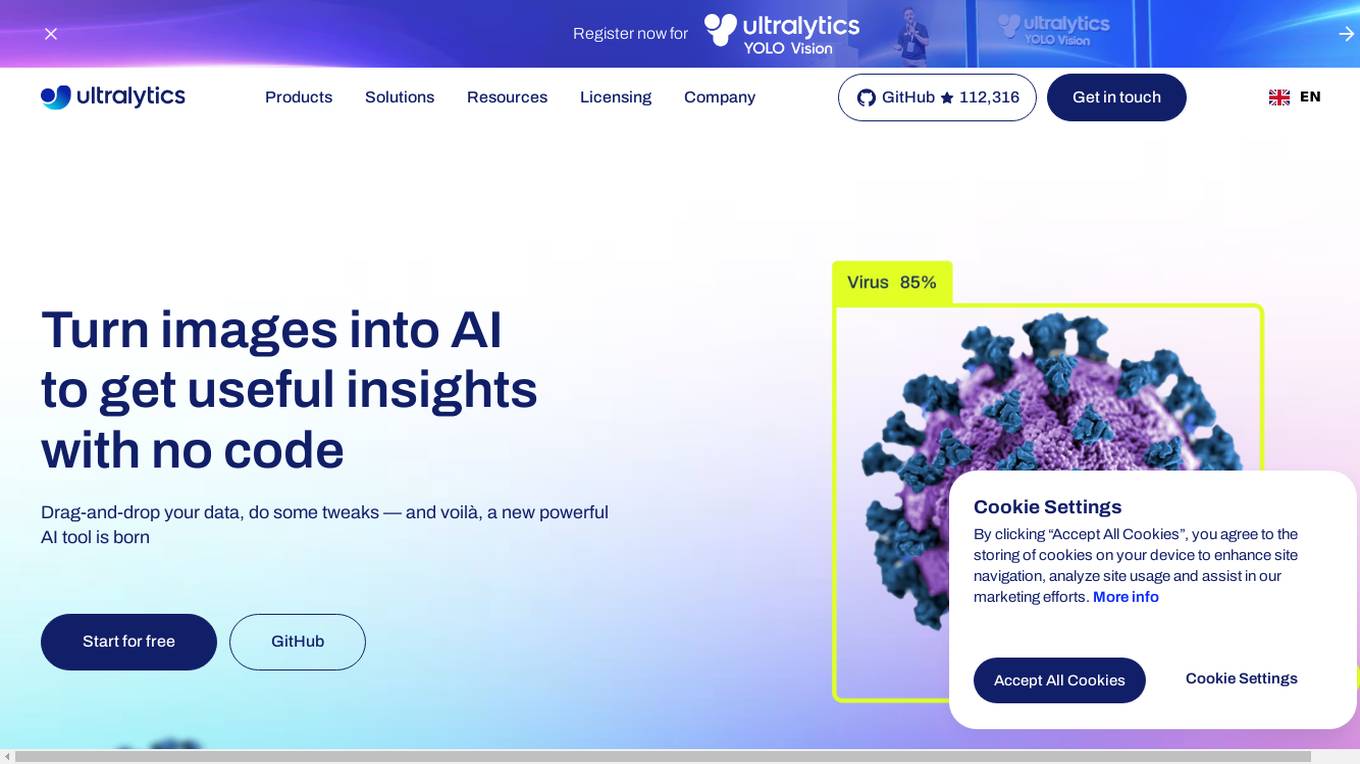
Ultralytics
Ultralytics is an AI tool that revolutionizes the world of Vision AI by enabling users to easily turn images into AI to get useful insights without writing any code. It offers a drag-and-drop interface for data input, model training, and deployment, making it accessible for startups, enterprises, data scientists, ML engineers, hobbyists, researchers, and academics. Ultralytics YOLO, the flagship tool, allows users to train machine learning models in seconds, select from pre-built models, test models on mobile devices, and deploy custom models to various formats. The tool is powered by Ultralytics Python package and is open-source, with a focus on computer vision, object detection, and image classification.
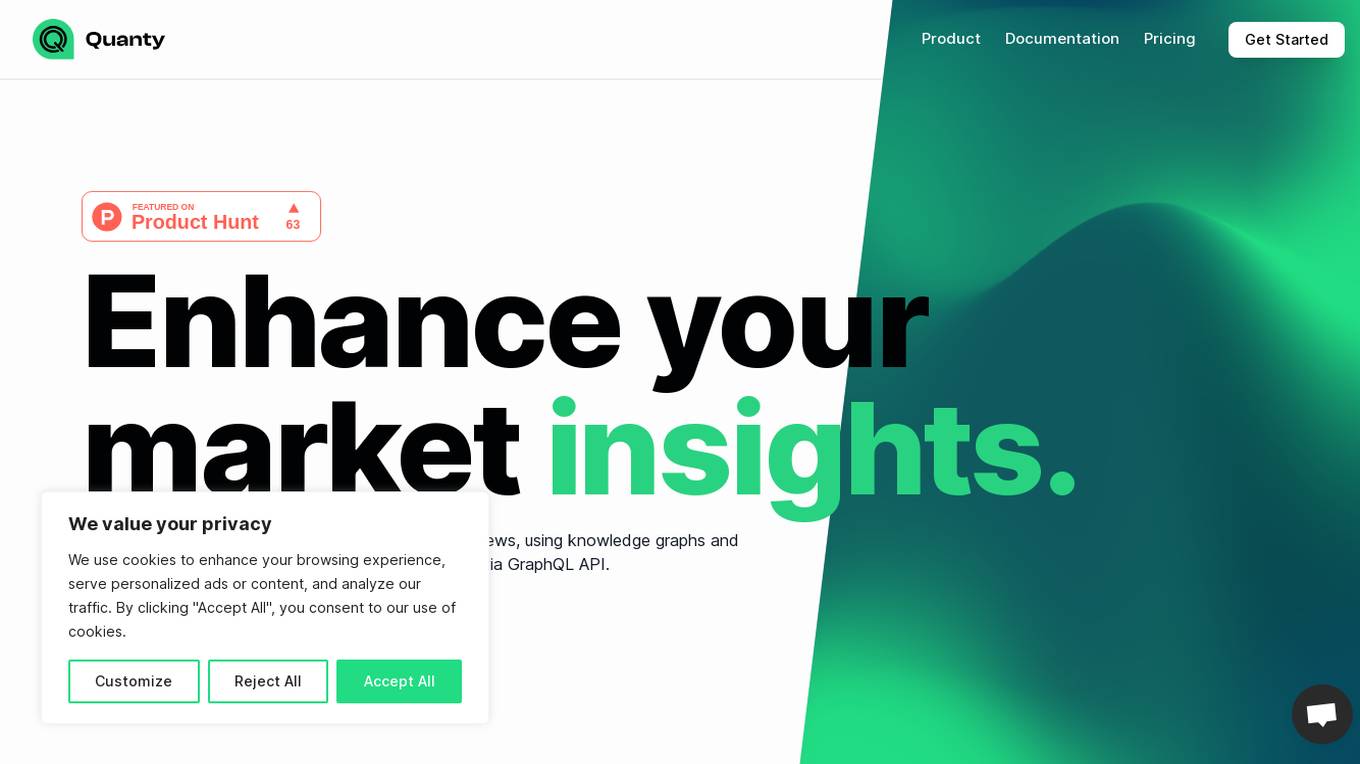
Quanty
Quanty is an AI-driven financial knowledge graph application that provides market insights on crypto and stocks news through advanced algorithms and knowledge graphs. It offers a GraphQL API for deep market understanding, smart data classification, current market insights, entity and relationship extraction, and dynamic GraphQL access. Users can access a wide range of financial news, insights, and analytics seamlessly through Quanty's robust GraphQL API.
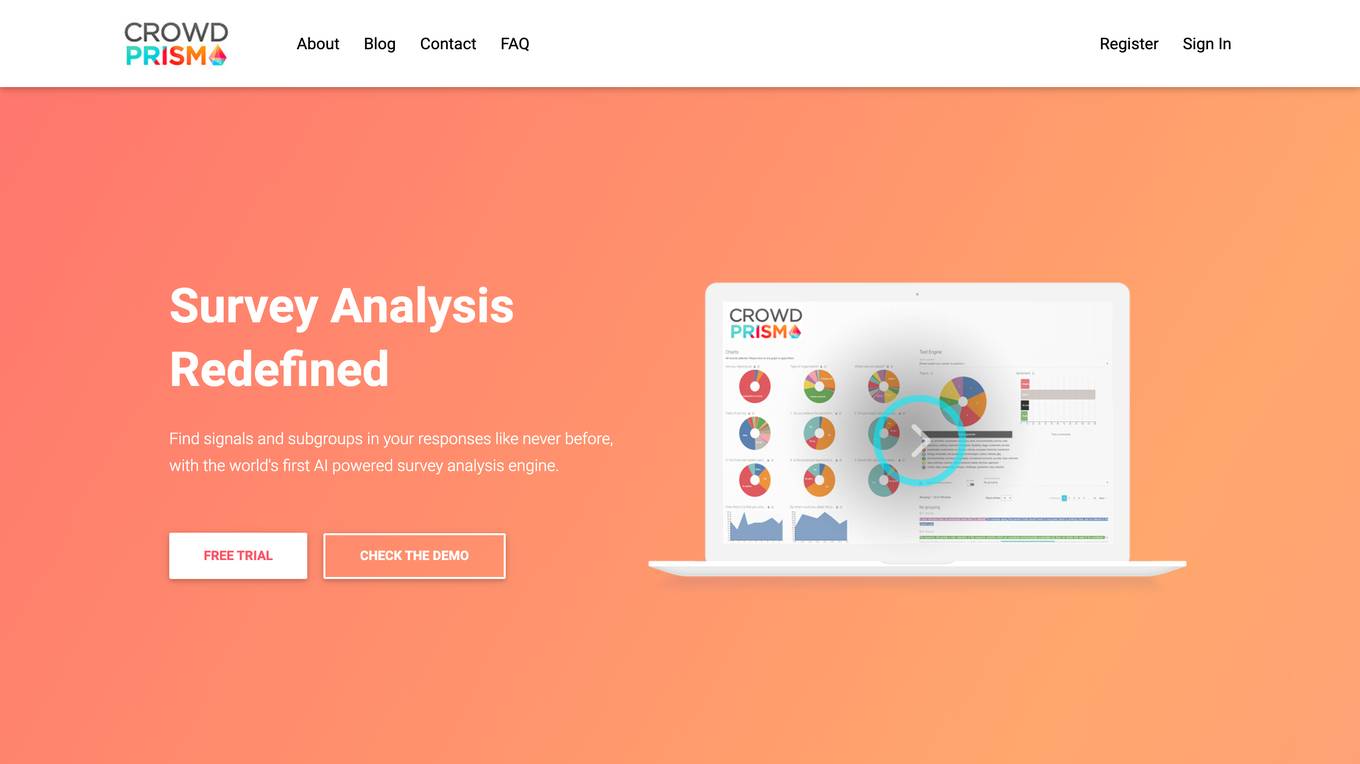
CrowdPrisma
CrowdPrisma is an AI-powered platform that revolutionizes qualitative surveys by turning text responses into quantitative insights. It offers a powerful TextEngine that can analyze thousands of responses in minutes, group them into coherent themes, and provide sentiment classification. The platform features an interactive dashboard, AI-powered group finding, automatic discovery of respondent groups, multilingual support, and fair billing practices. CrowdPrisma is designed to help with market research, customer experience analysis, human resources insights, policy and public opinion research, and more.
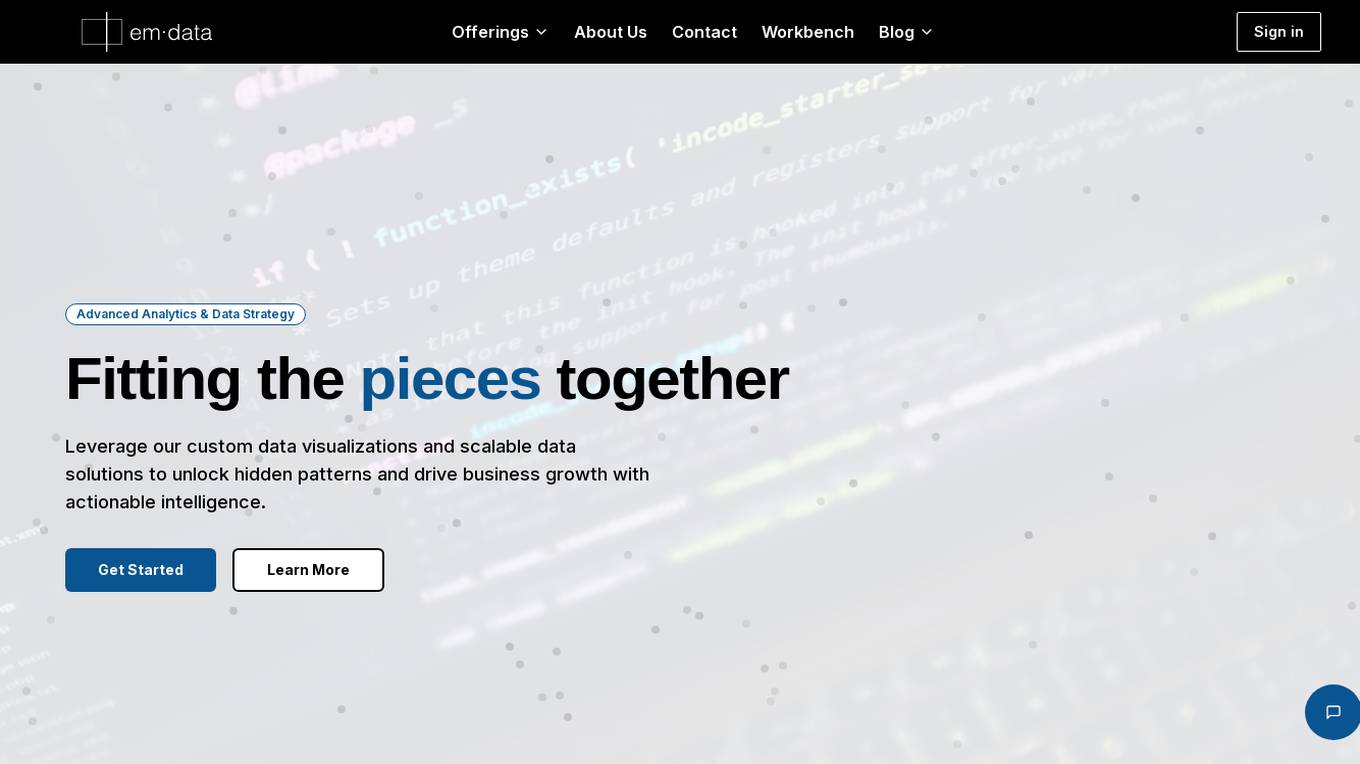
emdata.ai
emdata.ai is an advanced analytics and data strategy platform that offers a comprehensive portfolio of tools for leveraging data to drive business growth. The platform provides custom data visualizations, scalable data solutions, and AI-driven classification to uncover hidden patterns and insights. With features like deep financial analysis, competitive intelligence analysis, real-time data processing, and predictive analytics, emdata.ai empowers users to make informed decisions and optimize their operations. The platform also offers customized training programs to enhance users' data skills and knowledge.
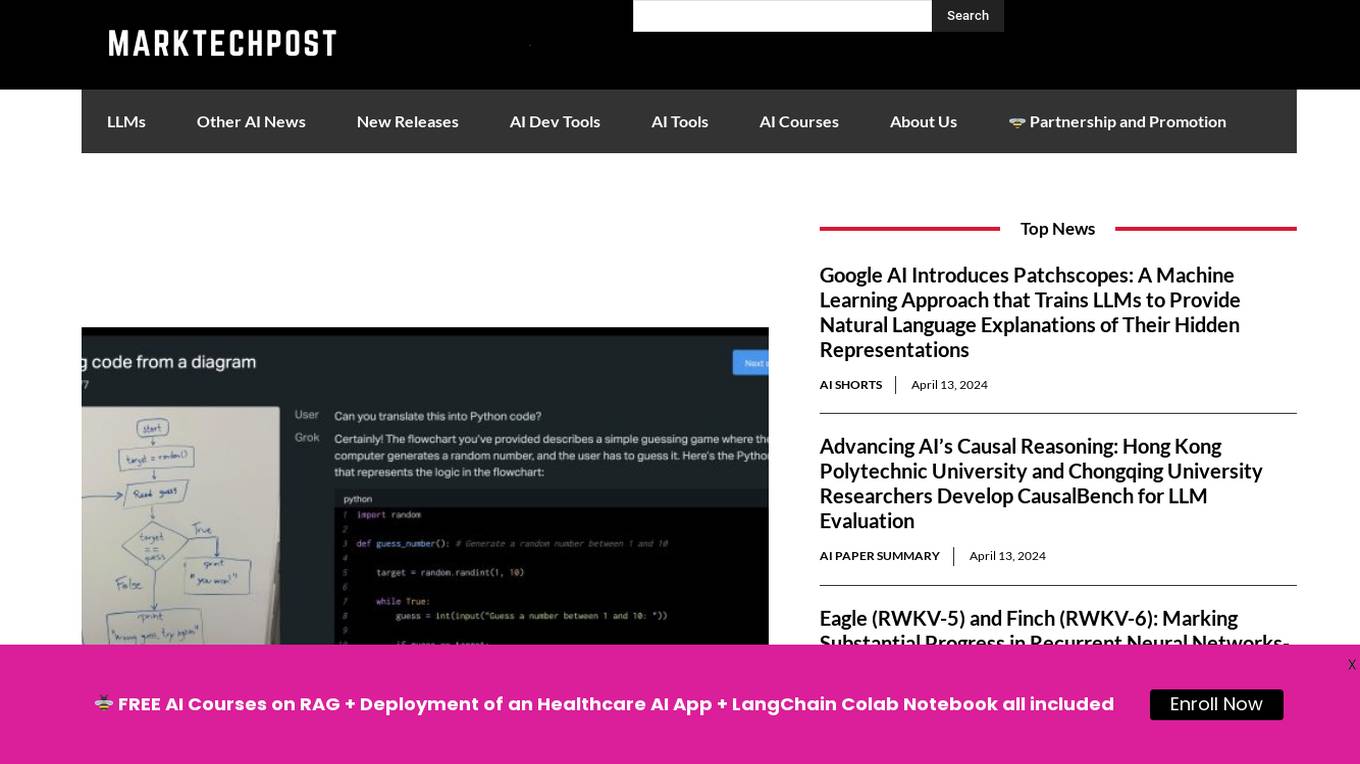
Grok-1.5 Vision
Grok-1.5 Vision (Grok-1.5V) is a groundbreaking multimodal AI model developed by Elon Musk's research lab, x.AI. This advanced model has the potential to revolutionize the field of artificial intelligence and shape the future of various industries. Grok-1.5V combines the capabilities of computer vision, natural language processing, and other AI techniques to provide a comprehensive understanding of the world around us. With its ability to analyze and interpret visual data, Grok-1.5V can assist in tasks such as object recognition, image classification, and scene understanding. Additionally, its natural language processing capabilities enable it to comprehend and generate human language, making it a powerful tool for communication and information retrieval. Grok-1.5V's multimodal nature sets it apart from traditional AI models, allowing it to handle complex tasks that require a combination of visual and linguistic understanding. This makes it a valuable asset for applications in fields such as healthcare, manufacturing, and customer service.
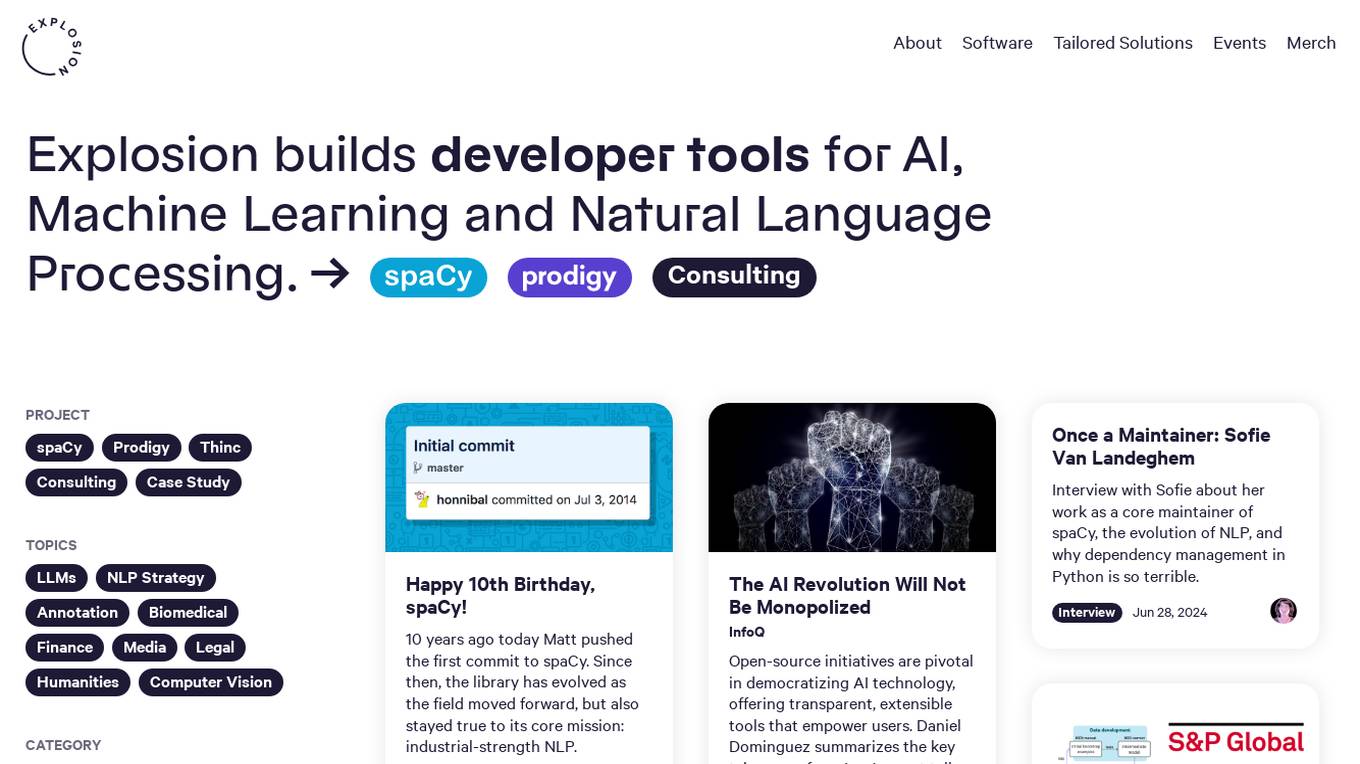
Explosion
Explosion is a software company specializing in developer tools and tailored solutions for AI, Machine Learning, and Natural Language Processing (NLP). They are the makers of spaCy, one of the leading open-source libraries for advanced NLP. The company offers consulting services and builds developer tools for various AI-related tasks, such as coreference resolution, dependency parsing, image classification, named entity recognition, and more.
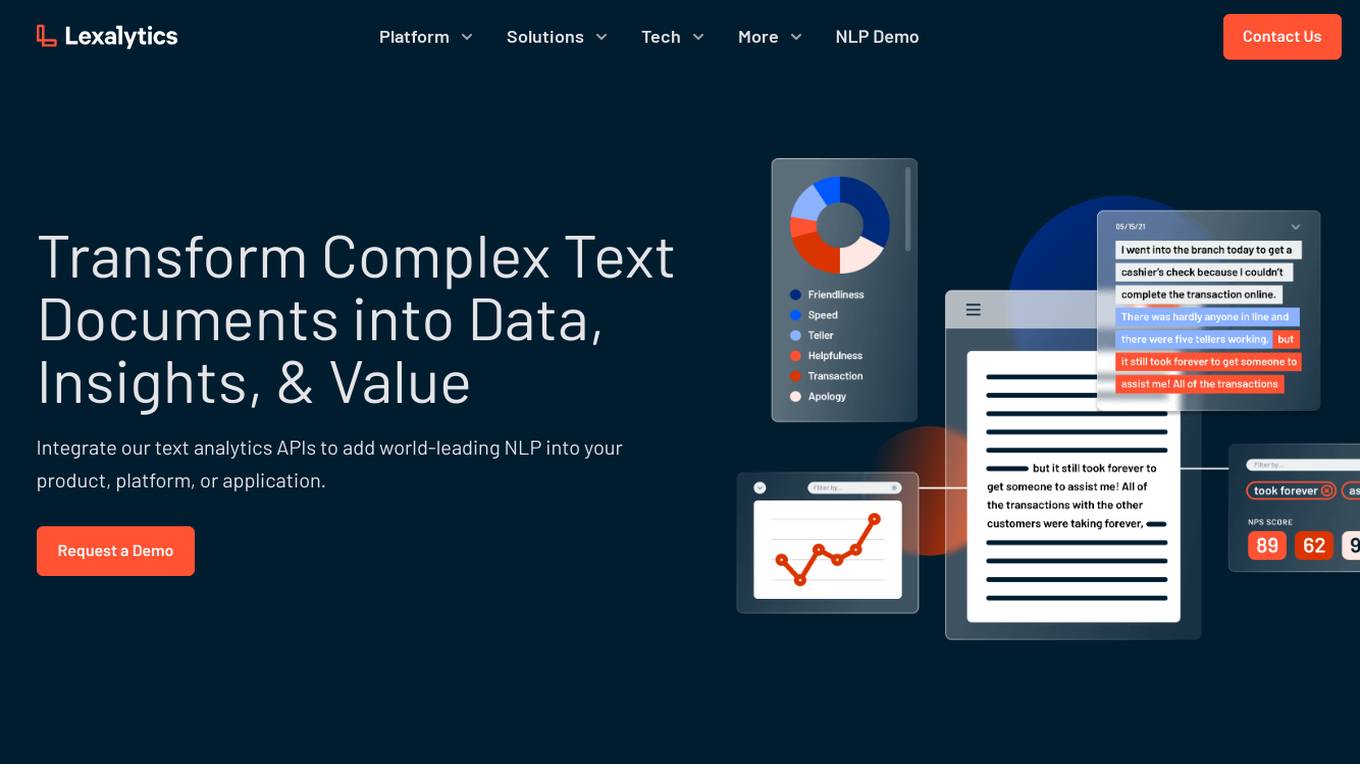
Lexalytics
Lexalytics is a leading provider of text analytics and natural language processing (NLP) solutions. Our platform and services help businesses transform complex text data into valuable insights and actionable intelligence. With Lexalytics, you can: * **Analyze customer feedback** to understand what your customers are saying about your products, services, and brand. * **Identify trends and patterns** in text data to make better decisions about your business. * **Automate tasks** such as document classification, entity extraction, and sentiment analysis. * **Develop custom NLP applications** to meet your specific needs.
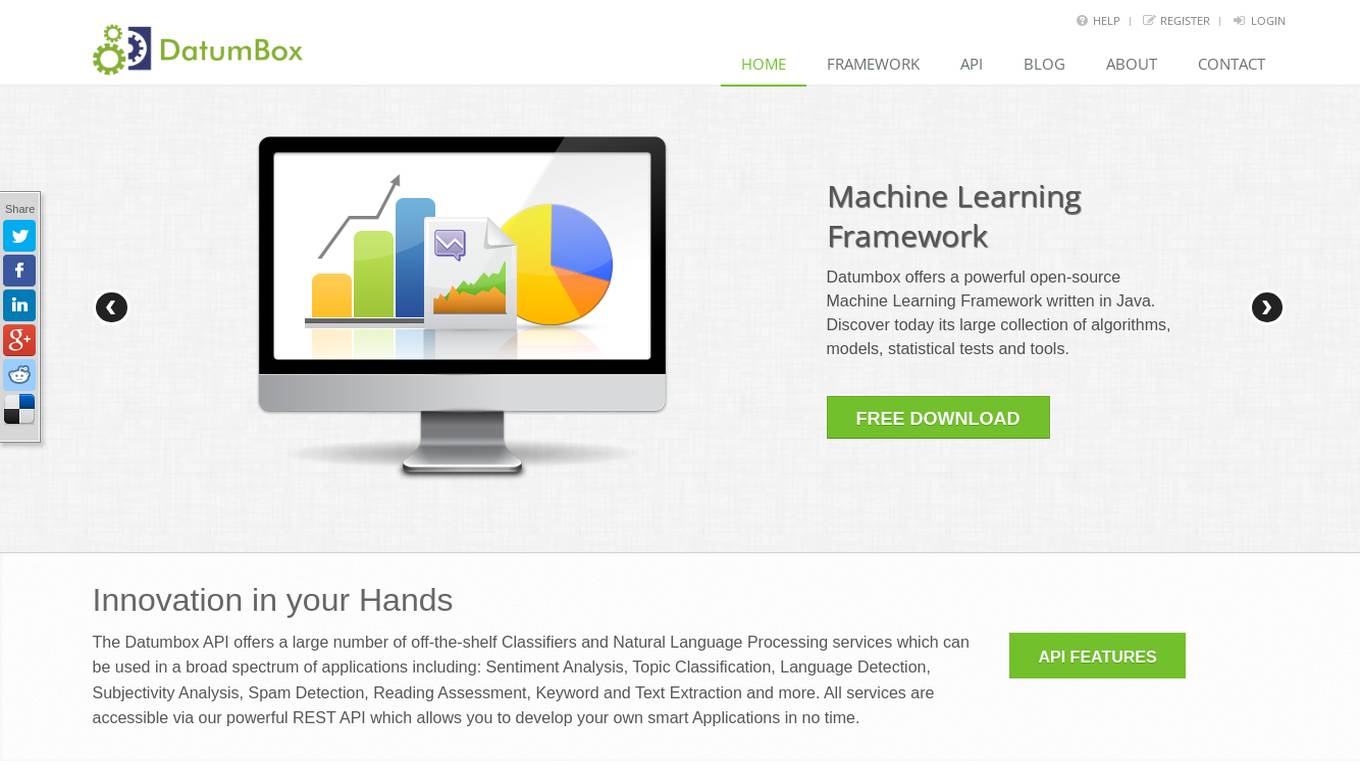
Datumbox
Datumbox is a machine learning platform that offers a powerful open-source Machine Learning Framework written in Java. It provides a large collection of algorithms, models, statistical tests, and tools to power up intelligent applications. The platform enables developers to build smart software and services quickly using its REST Machine Learning API. Datumbox API offers off-the-shelf Classifiers and Natural Language Processing services for applications like Sentiment Analysis, Topic Classification, Language Detection, and more. It simplifies the process of designing and training Machine Learning models, making it easy for developers to create innovative applications.
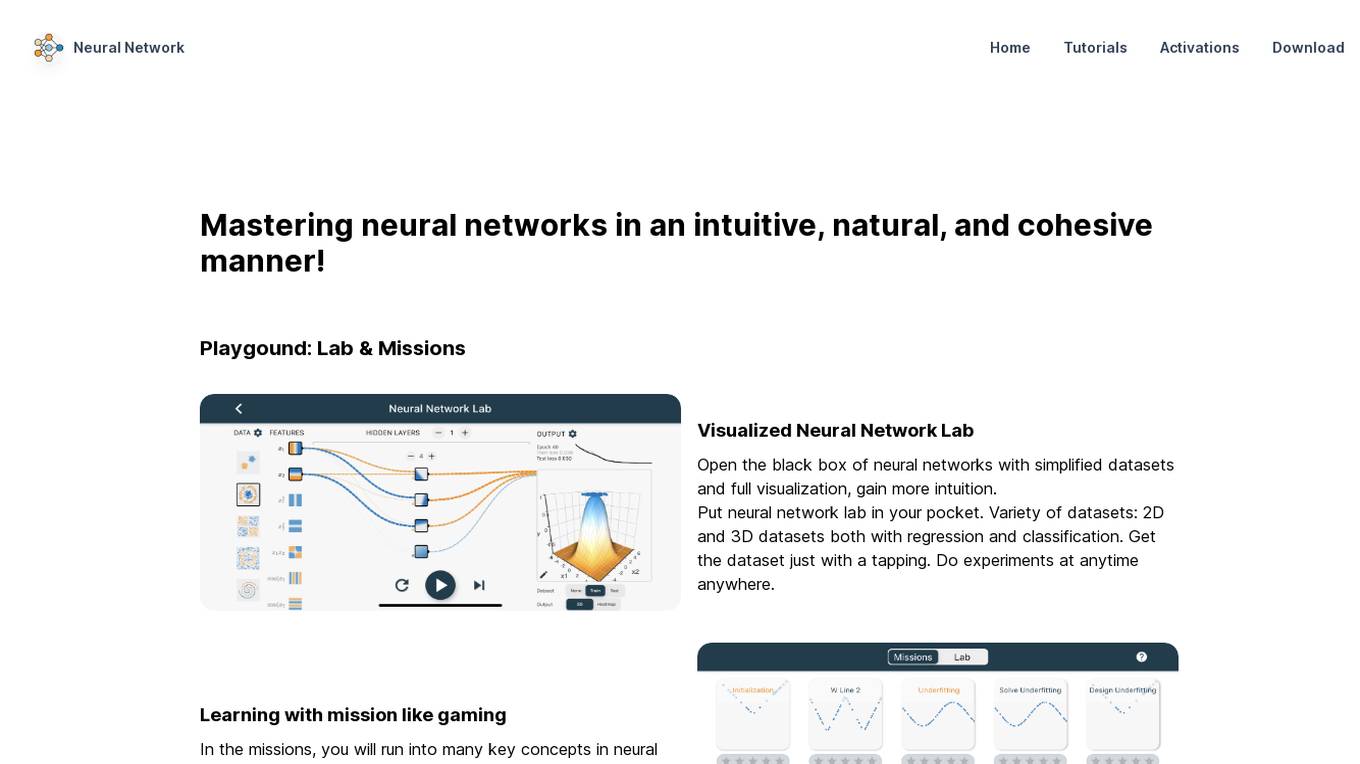
Neural Network Playground
The website offers interactive tutorials on neural networks and deep learning, providing a comprehensive platform for mastering neural networks in an intuitive, natural, and cohesive manner. Users can access a visualized neural network lab with simplified datasets, a variety of 2D and 3D datasets for regression and classification, and interactive missions to deepen understanding. The platform also features intuitive tutorials, well-visualized neural network knowledge with charts and animations, and a visual deep learning model editor for efficient model building. Overall, it aims to enhance learning and understanding of neural networks through interactive and visual tools.
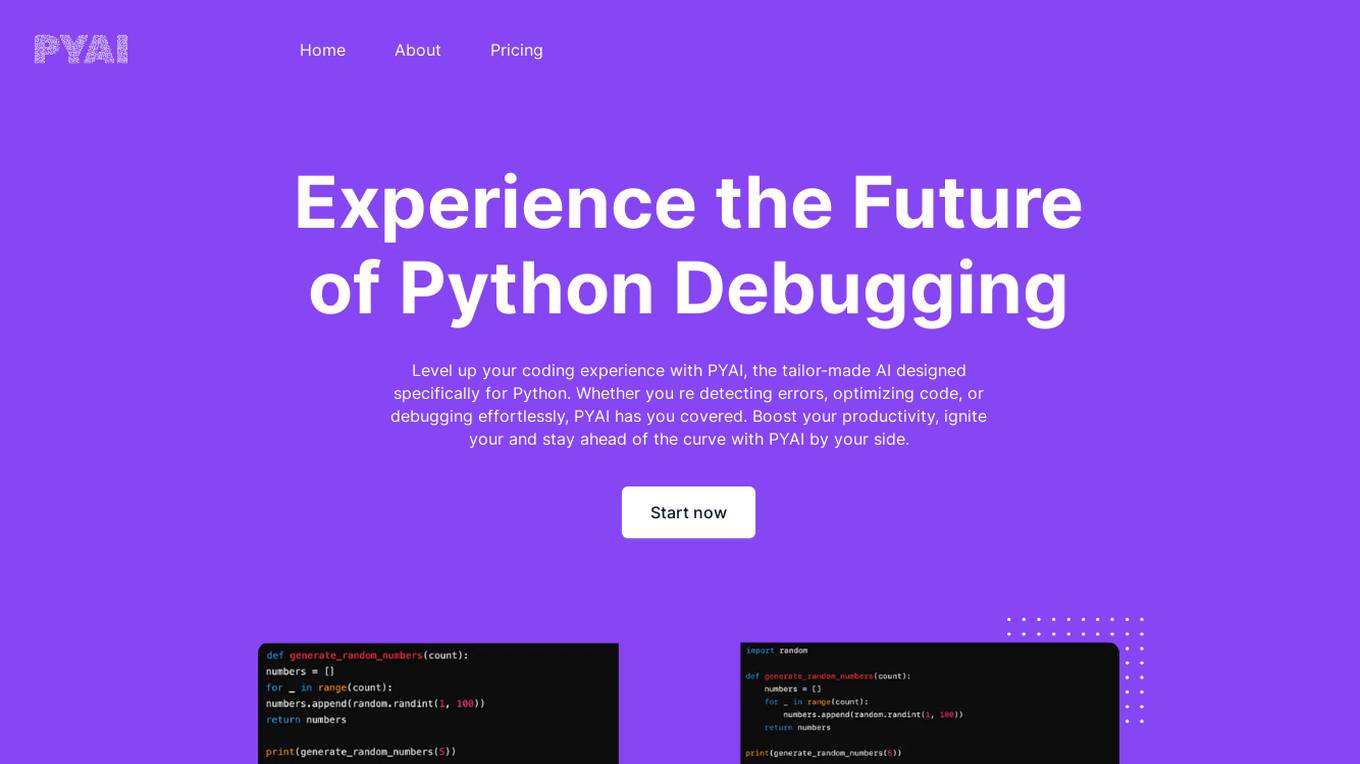
PyAI
PyAI is an advanced AI tool designed for developers and data scientists to streamline their workflow and enhance productivity. It offers a wide range of AI capabilities, including machine learning algorithms, natural language processing, computer vision, and more. With PyAI, users can easily build, train, and deploy AI models for various applications, such as predictive analytics, image recognition, and text classification. The tool provides a user-friendly interface and comprehensive documentation to support users at every stage of their AI projects.
1 - Open Source AI Tools
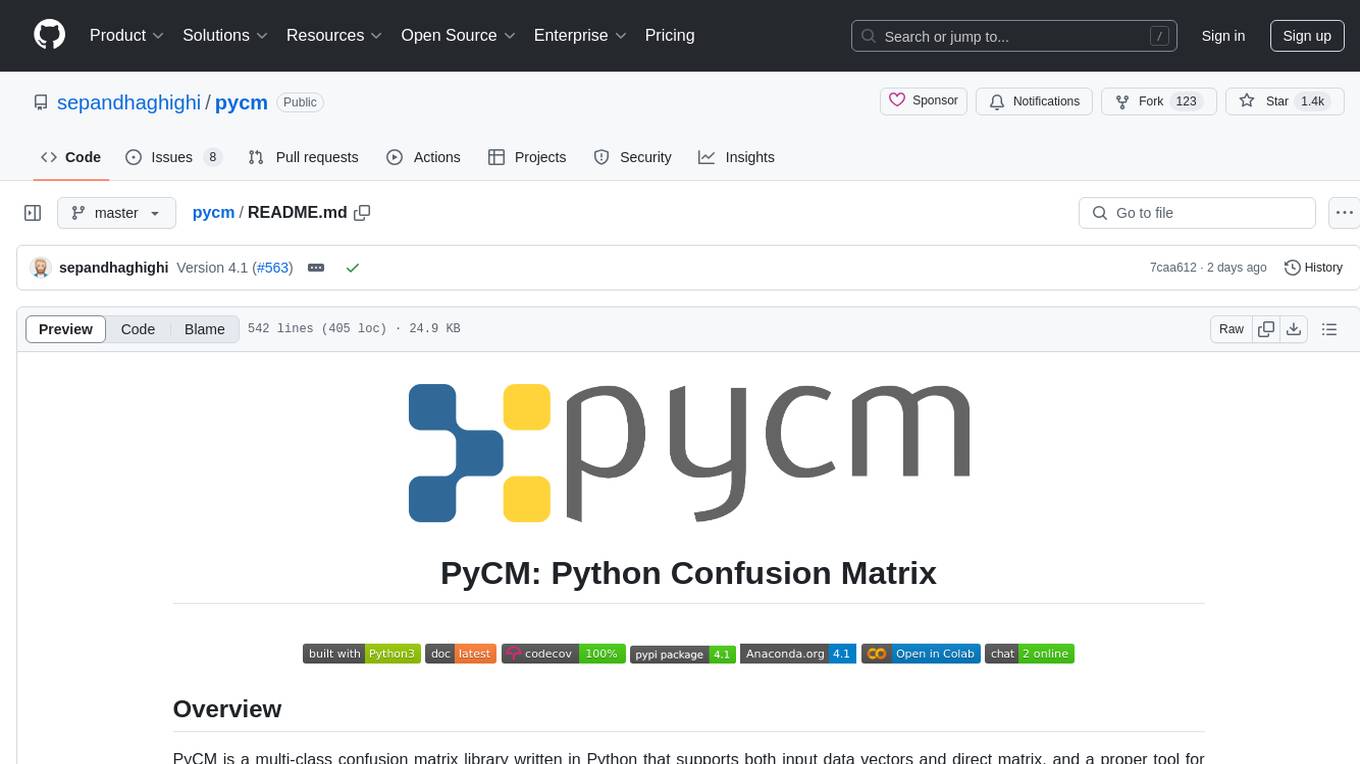
pycm
PyCM is a Python library for multi-class confusion matrices, providing support for input data vectors and direct matrices. It is a comprehensive tool for post-classification model evaluation, offering a wide range of metrics for predictive models and accurate evaluation of various classifiers. PyCM is designed for data scientists who require diverse metrics for their models.
20 - OpenAI Gpts
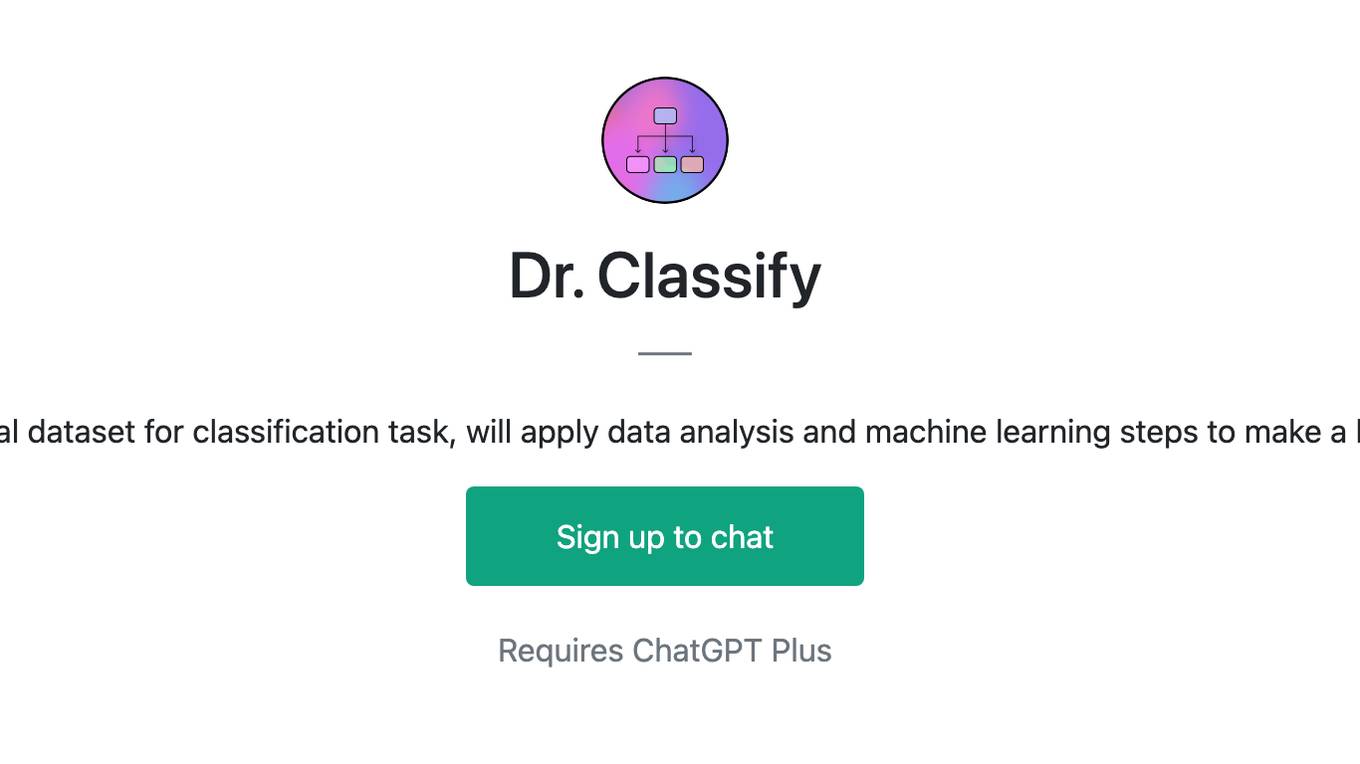
Dr. Classify
Just upload a numerical dataset for classification task, will apply data analysis and machine learning steps to make a best model possible.
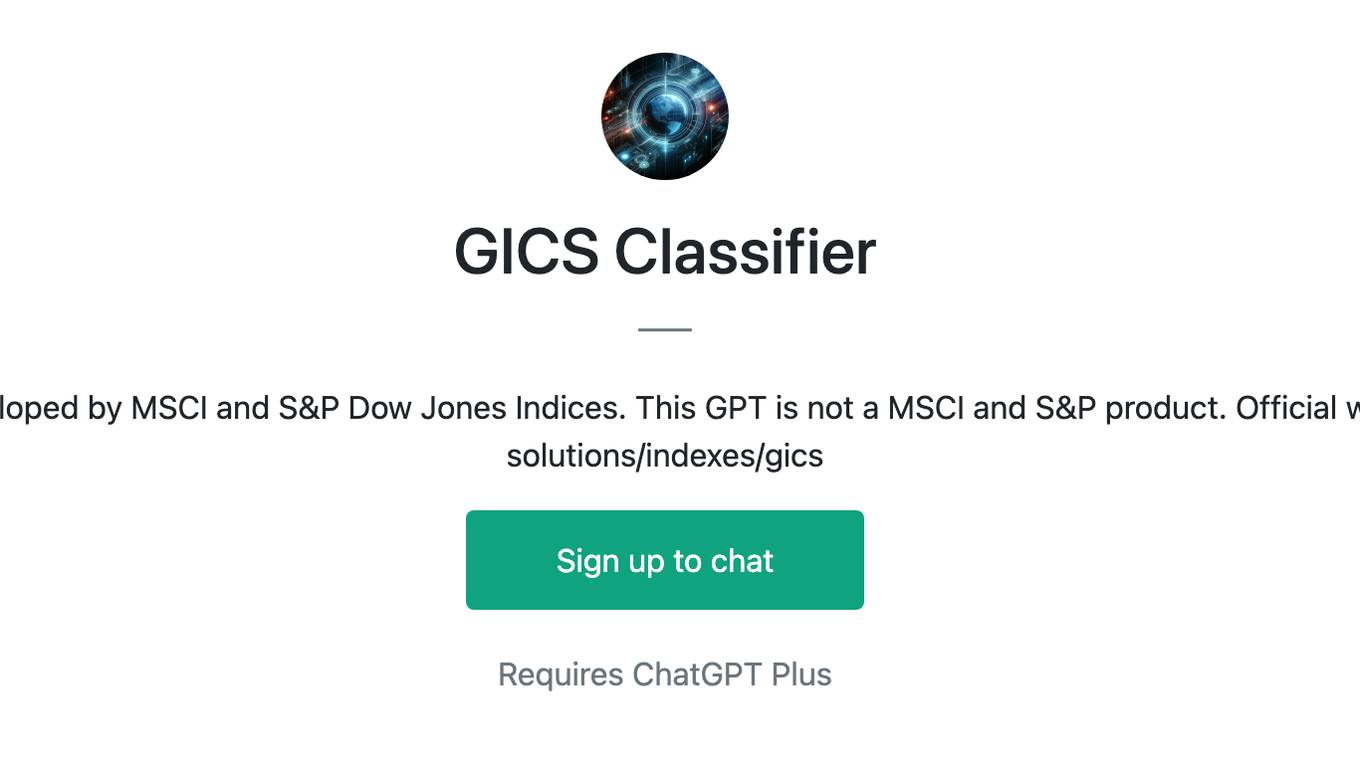
GICS Classifier
GICS is a classification standard developed by MSCI and S&P Dow Jones Indices. This GPT is not a MSCI and S&P product. Official website : https://www.msci.com/our-solutions/indexes/gics
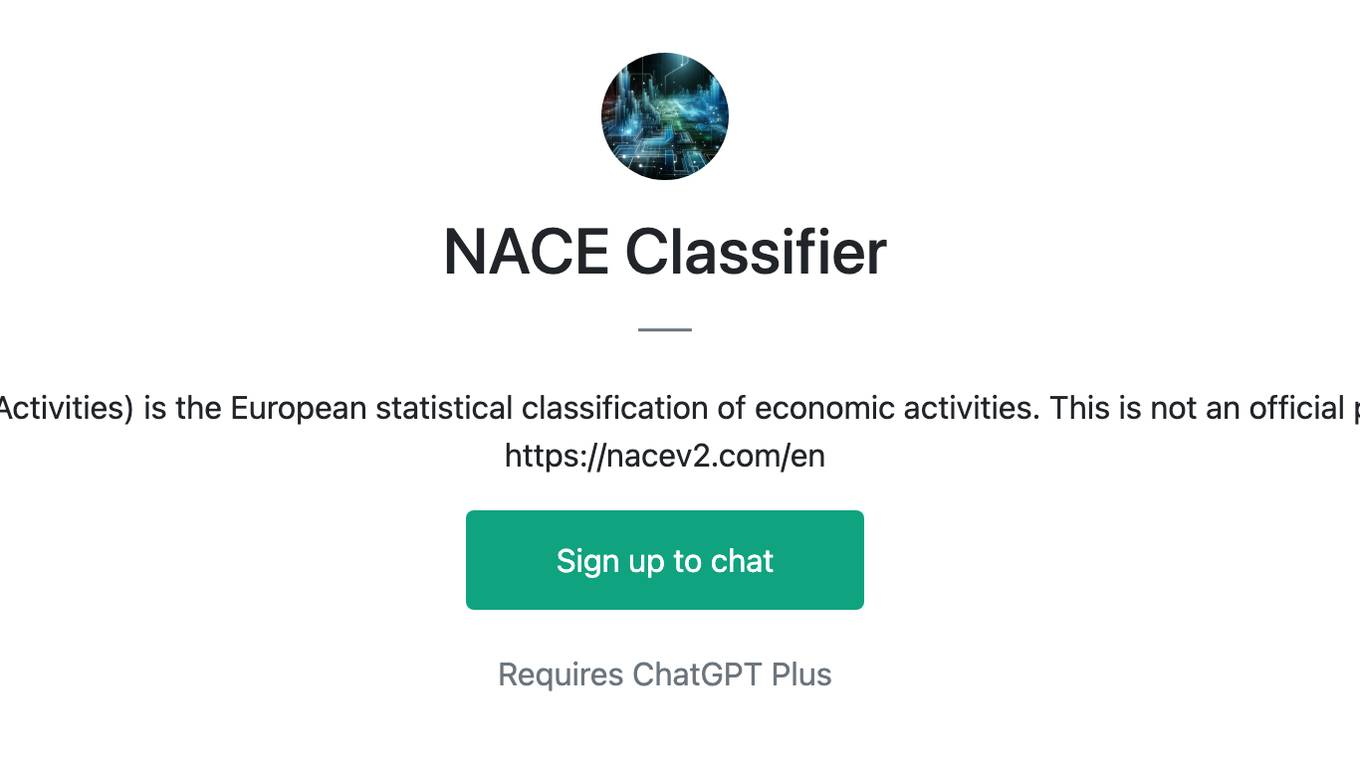
NACE Classifier
NACE (Nomenclature of Economic Activities) is the European statistical classification of economic activities. This is not an official product. Official information here: https://nacev2.com/en
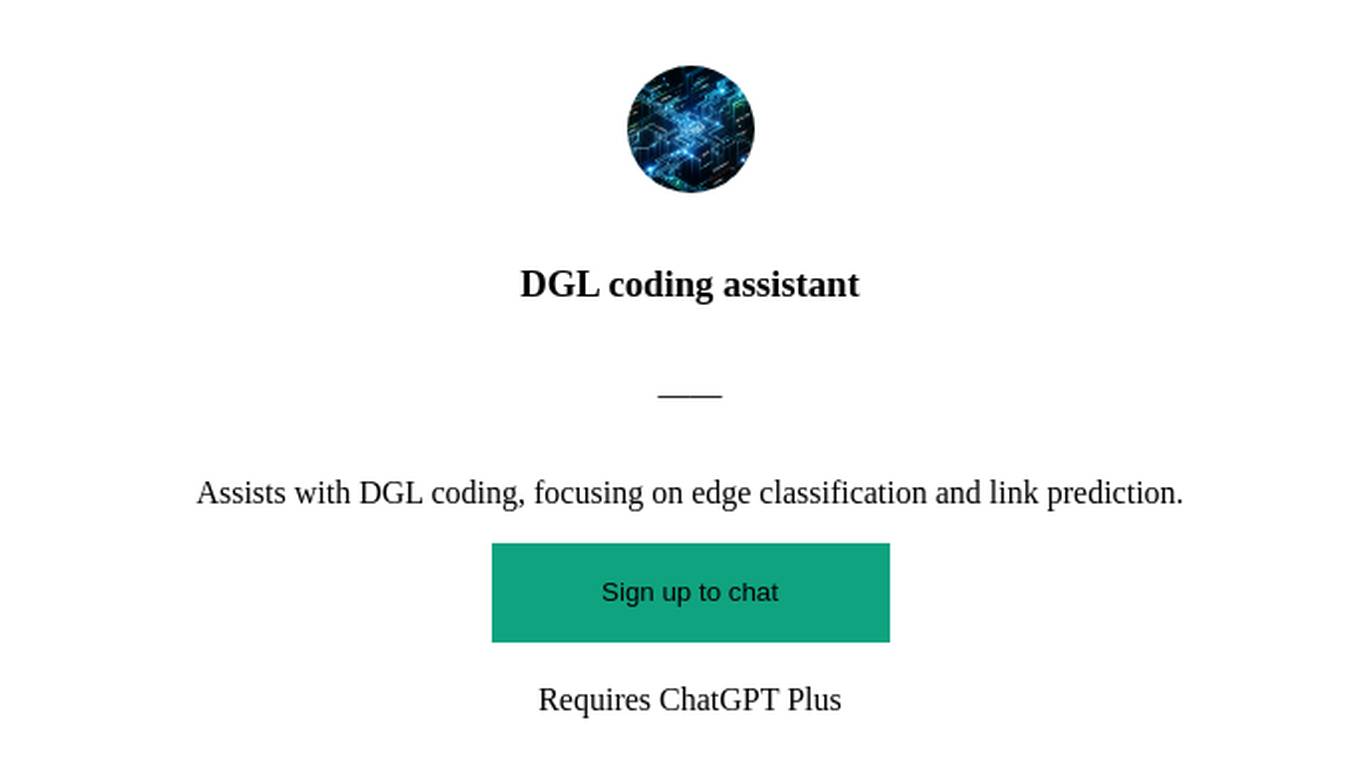
DGL coding assistant
Assists with DGL coding, focusing on edge classification and link prediction.
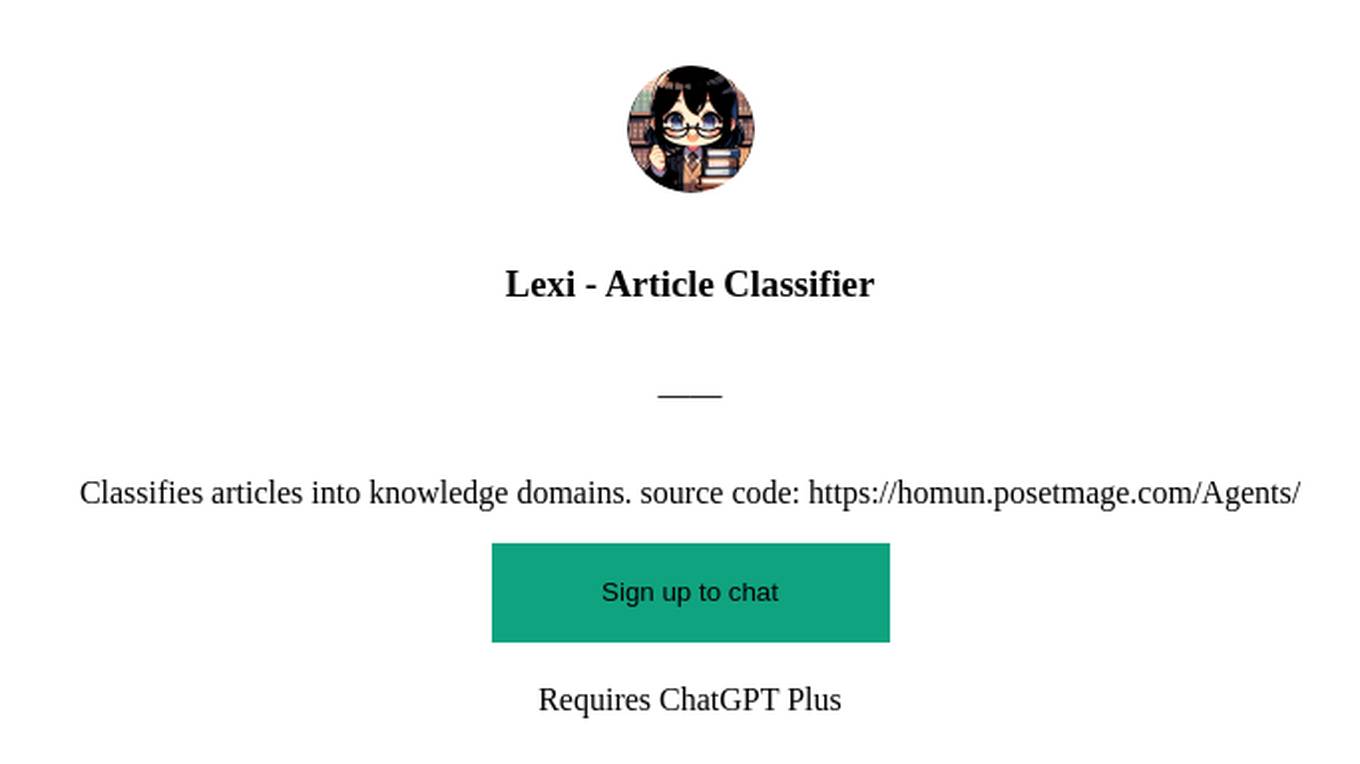
Lexi - Article Classifier
Classifies articles into knowledge domains. source code: https://homun.posetmage.com/Agents/
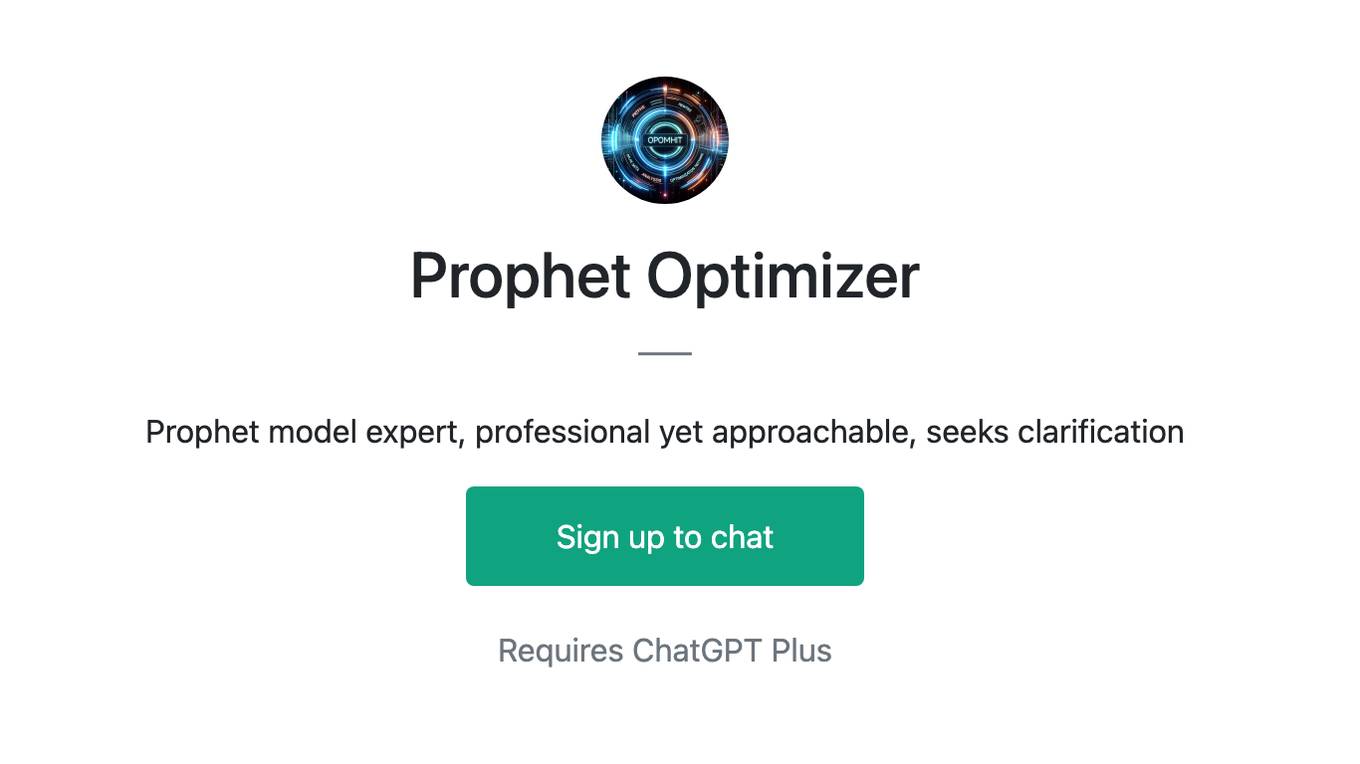
Prophet Optimizer
Prophet model expert, professional yet approachable, seeks clarification
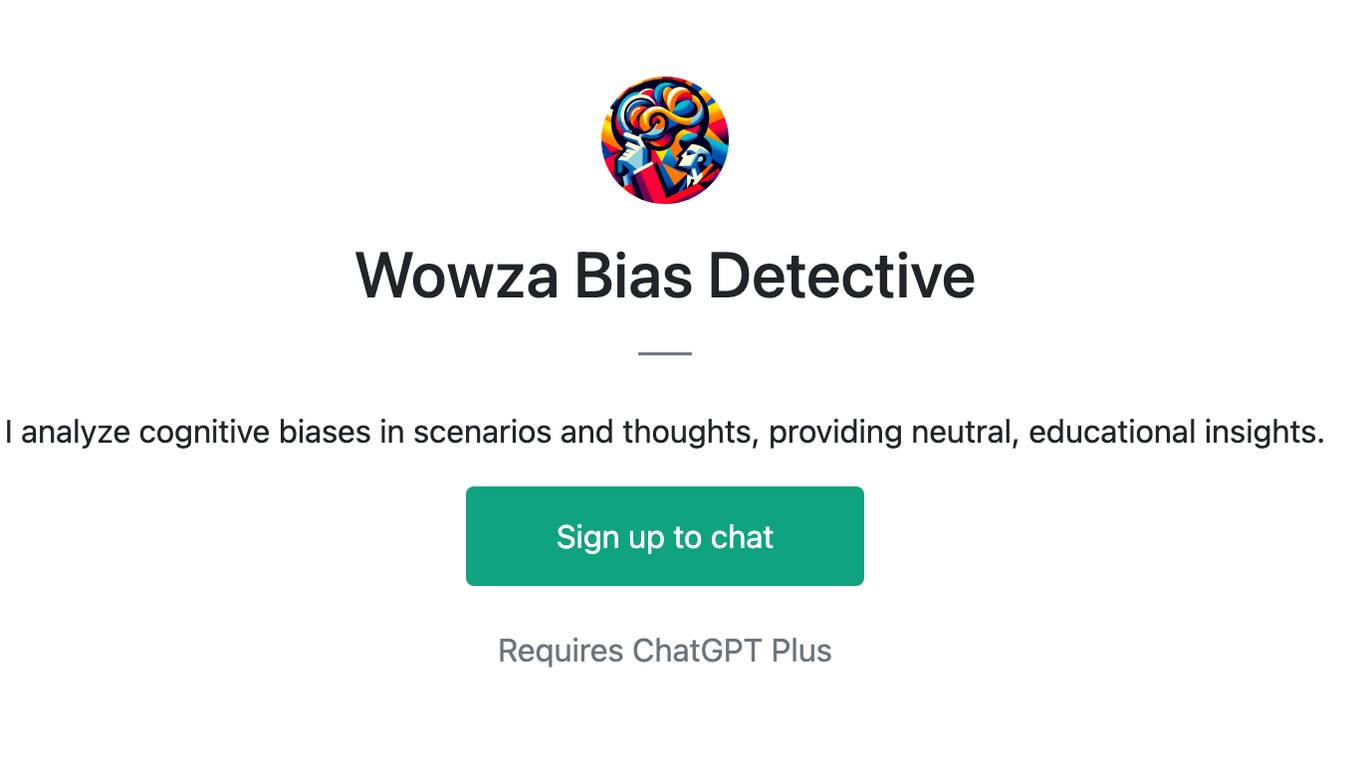
Wowza Bias Detective
I analyze cognitive biases in scenarios and thoughts, providing neutral, educational insights.
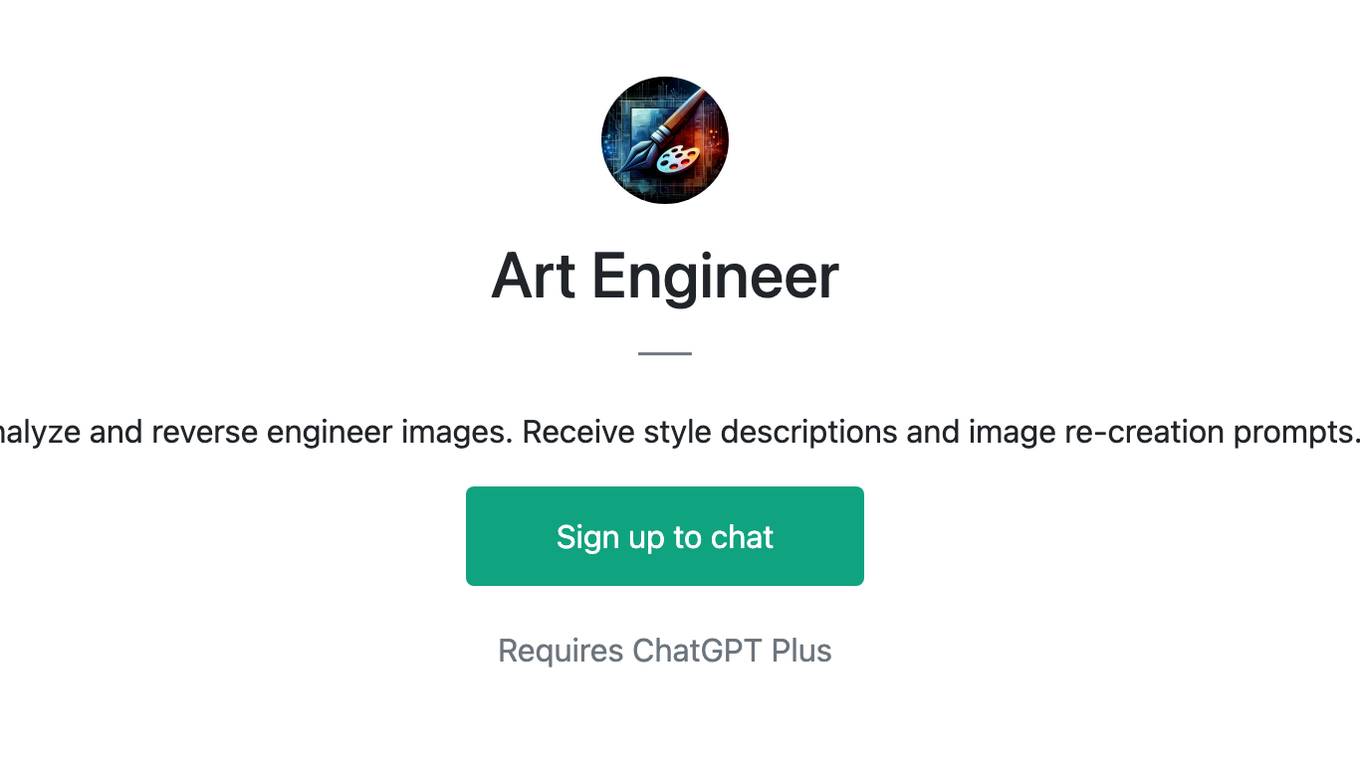
Art Engineer
Analyze and reverse engineer images. Receive style descriptions and image re-creation prompts.
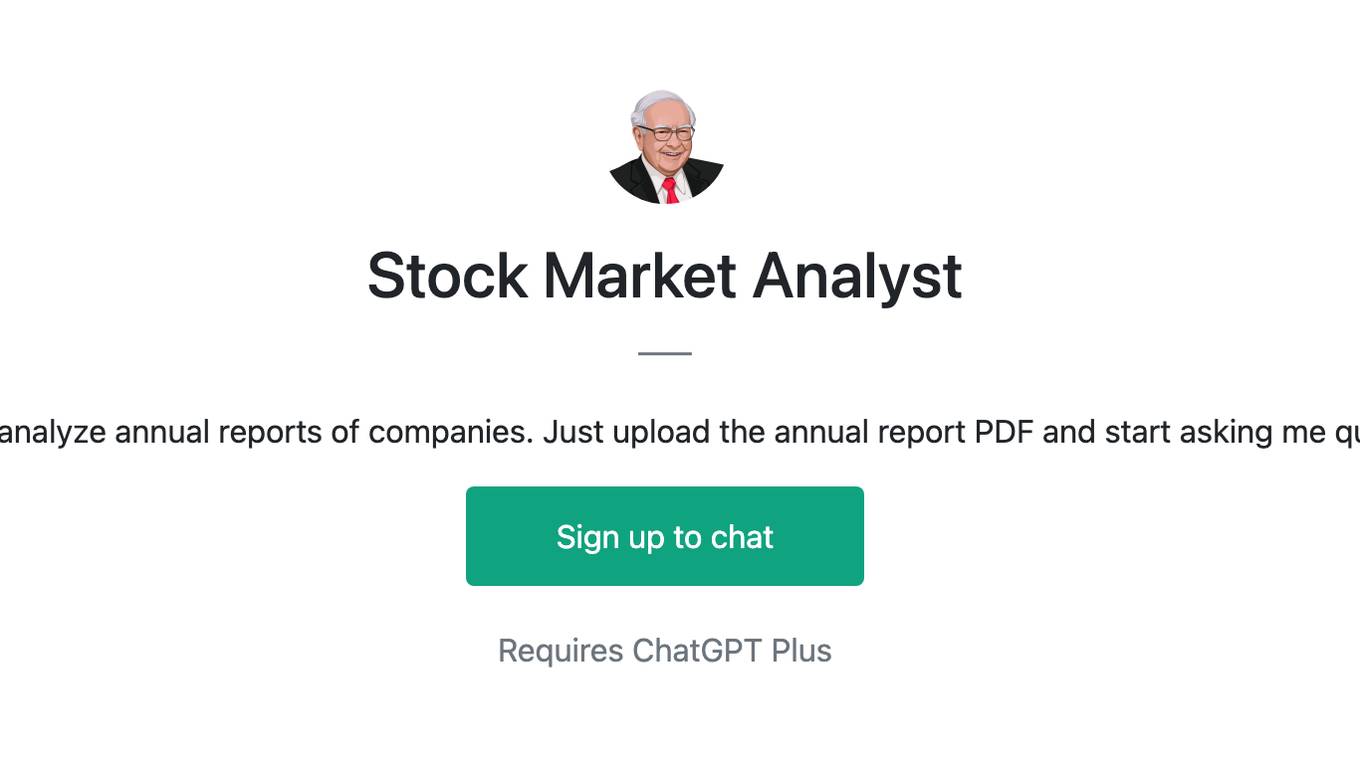
Stock Market Analyst
I read and analyze annual reports of companies. Just upload the annual report PDF and start asking me questions!
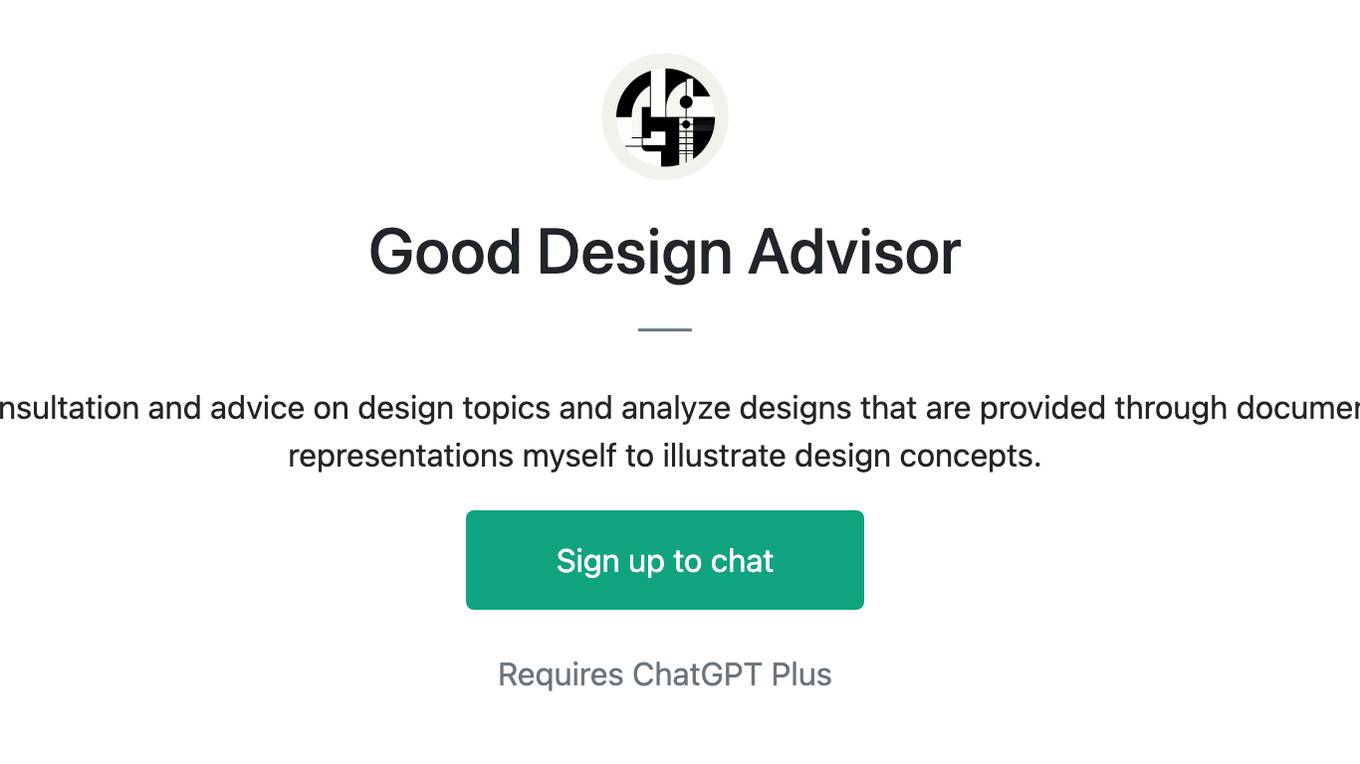
Good Design Advisor
As a Good Design Advisor, I provide consultation and advice on design topics and analyze designs that are provided through documents or links. I can also generate visual representations myself to illustrate design concepts.
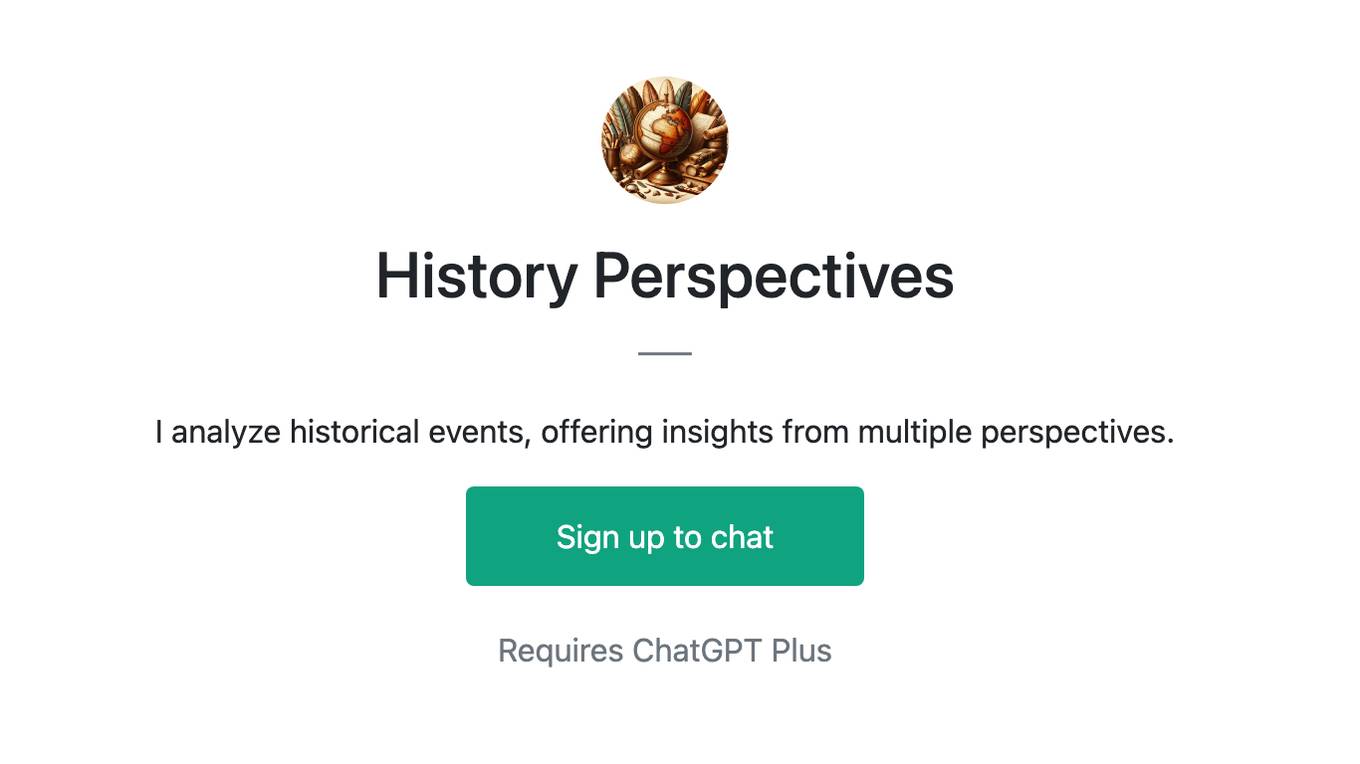
History Perspectives
I analyze historical events, offering insights from multiple perspectives.
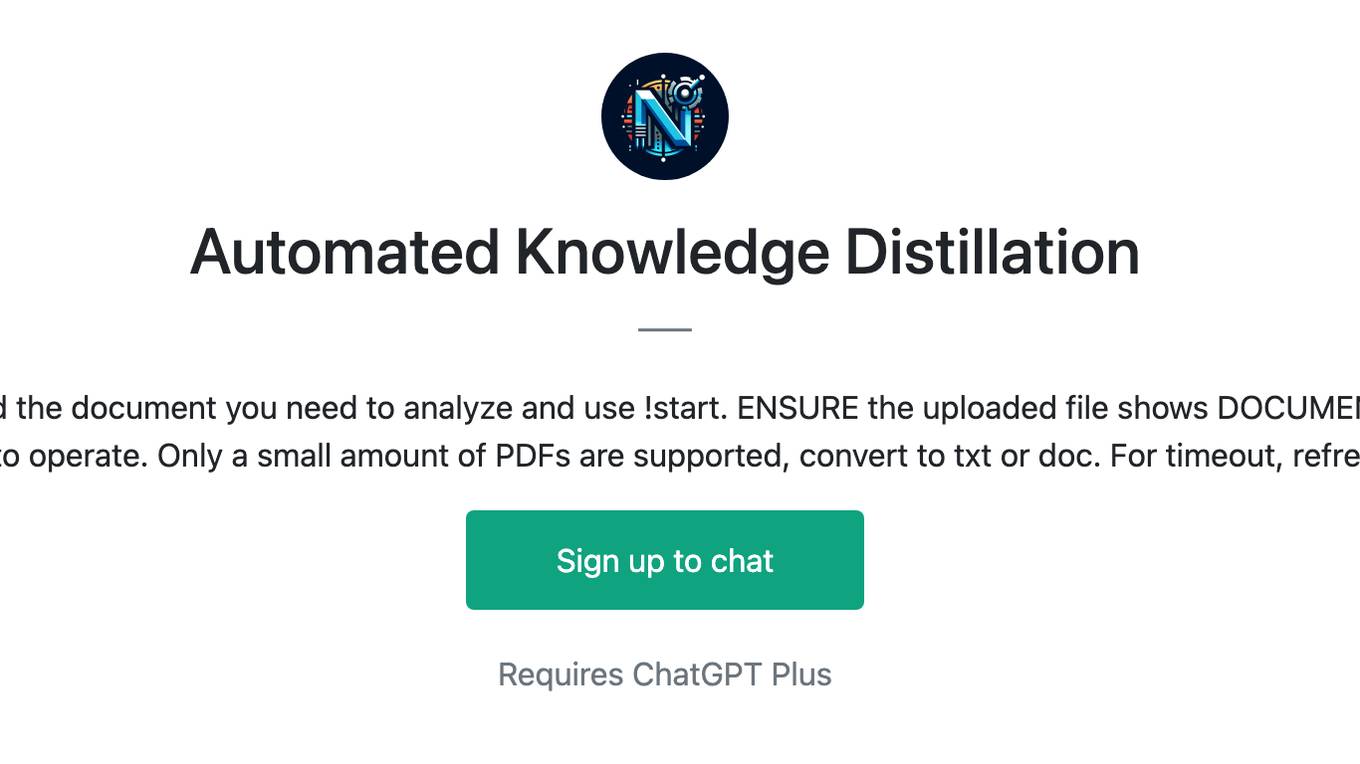
Automated Knowledge Distillation
For strategic knowledge distillation, upload the document you need to analyze and use !start. ENSURE the uploaded file shows DOCUMENT and NOT PDF. This workflow requires leveraging RAG to operate. Only a small amount of PDFs are supported, convert to txt or doc. For timeout, refresh & !continue
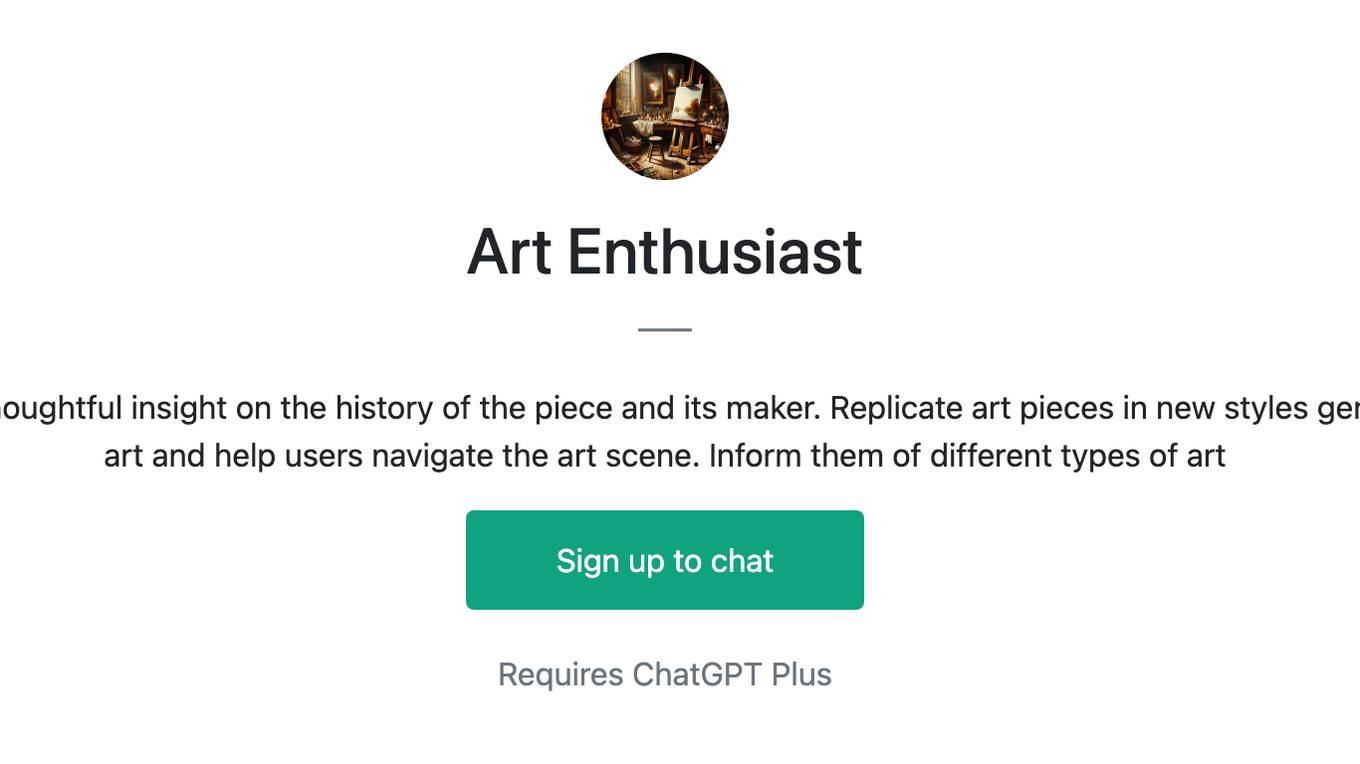
Art Enthusiast
Analyze any uploaded art piece, providing thoughtful insight on the history of the piece and its maker. Replicate art pieces in new styles generated by the user. Be an overall expert in art and help users navigate the art scene. Inform them of different types of art
